Arts & Entertainment
Longtime LGBTQ+ Ally Betty White has died at 99
BREAKING: The beloved actress who was set to celebrate her 100th birthday on January 17, 2022 died overnight in Los Angeles
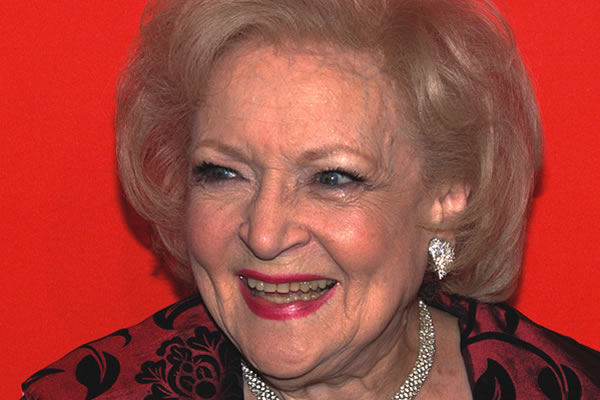
Betty White, the beloved actress and animal rights advocate who stood by the LGBTQ+ community as a strong ally died overnight at her home in Brentwood, in West Los Angeles, her friend and agent Jeff Witjas told the Washington Post Friday. She was 99.
White, who was due to celebrate her 100th birthday on January 17 had tweeted on Tuesday, December 28:
“My 100th birthday… I cannot believe it is coming up, and People Magazine is celebrating with me! The new issue of @people is available on newsstands nationwide tomorrow.
My 100th birthday… I cannot believe it is coming up, and People Magazine is celebrating with me! The new issue of @people is available on newsstands nationwide tomorrow. https://t.co/kTQnsbMDGK
— Betty White (@BettyMWhite) December 28, 2021
Reacting to the news about White’s death from their home in Wilmington, Delaware, when asked by reporters during an informal press gaggle, President Joe Biden said, “That’s a shame. She was a lovely lady.” The First Lady, Dr. Jill Biden said, “Who didn’t love Betty White? We’re so sad.”
California Governor Gavin Newsom issued a statement Friday saying:
“Betty was a trailblazer, and easily one of the most beloved and lasting figures in television. She co-founded her own production company in the 1950s, one of two women at the time wielding creative control on both sides of the camera. Her 80-year career is the longest for any woman in television, and her work on Golden Girls created a cultural touchstone that remains relevant almost 40 years after its premiere.
“But above all else, she was a beacon of hope throughout her career, bringing joy and humor to everything she did. Although she may not have been born here, she was a timeless Californian treasure, through and through, and was inducted into the California Hall of Fame in 2010. Betty happily shared her talents with the world, and her spark will live on, inspiring generations to come.”
A new book celebrating White’s life and career by veteran entertainment journalist Ray Richmond provides a narrative to the Emmy award winning actress’s journey in Hollywood, including hosting an early variety-talk show.
White became a TV sitcom star in “The Mary Tyler Moore Show” and “The Golden Girls.” Her appearance on “Saturday Night Live” in 2010 earned her a new generation of admirers.
A nationwide theatrical event of “Betty White: 100 Years Young — A Birthday Celebration,” was scheduled for Jan. 17, which would have been her 100th birthday, the Associated Press reported.
The one-day-only movie event is set to highlight moments the actress had during her career with appearances by Ryan Reynolds, Tina Fey, Robert Redford, and Morgan Freeman. The AP notes that in light of White’s death it is unknown if the event will proceed.
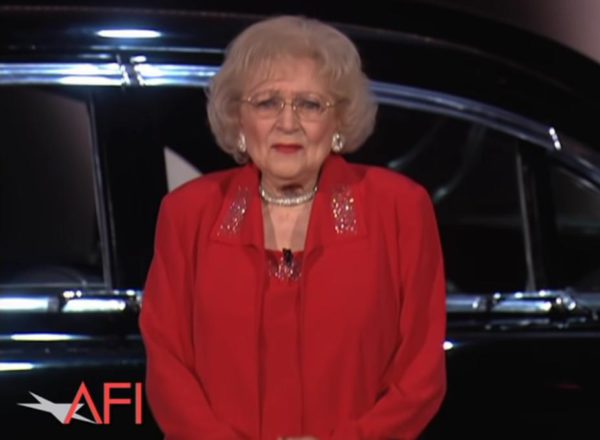
In an interview with Frontiers LA magazine Features Editor Jeremy Kinser, a portion of which was published in The Advocate on October 10, 2011, White attributed her huge following in the LGBTQ+ community to her racy characters and her love of animals.
“Throughout my career, I’ve always portrayed characters that were humorous, but also weren’t afraid to speak their minds, especially when it came to racy or controversial topics,” says White, whose résumé includes The Mary Tyler Moore Show‘s sardonic Sue Ann Niven and The Golden Girls‘ naïve Rose Nyland. “I think this struck a chord with the LGBT community. We both also share a very strong love for animals. When you combine the two, it’s a very strong match.”
White was also an early supporter of same-sex marriage telling Parade magazine in 2010 –”I don’t care who anybody sleeps with,” she said . “If a couple has been together all that time – and there are gay relationships that are more solid than some heterosexual ones – I think it’s fine if they want to get married. I don’t know how people can get so anti-something. Mind your own business, take care of your affairs, and don’t worry about other people so much.”
We are heartbroken over the death of Betty White, who died today at 99. We have lost a truly magnificent performer and humanitarian. White was the 46th recipient of the SAG Life Achievement award, given for career achievement and humanitarian accomplishment, in 2009. pic.twitter.com/ohWdQVVC5h
— SAG-AFTRA (@sagaftra) December 31, 2021
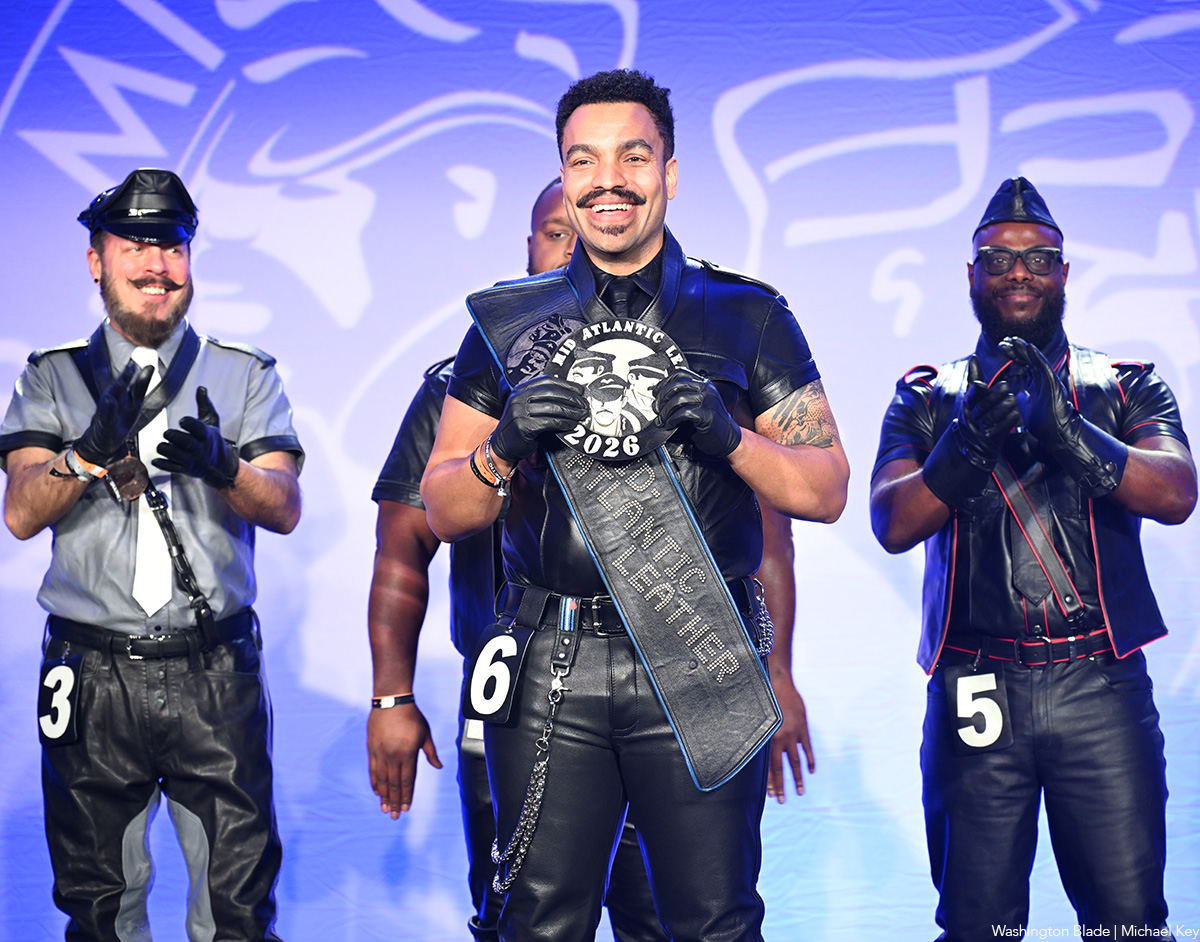
The 2026 Mr. Mid-Atlantic Leather competition was held at the Hyatt Regency Capitol Hill on Sunday. Seven contestants vied for the title and Gage Ryder was named the winner.
(Washington Blade photo by Michael Key)
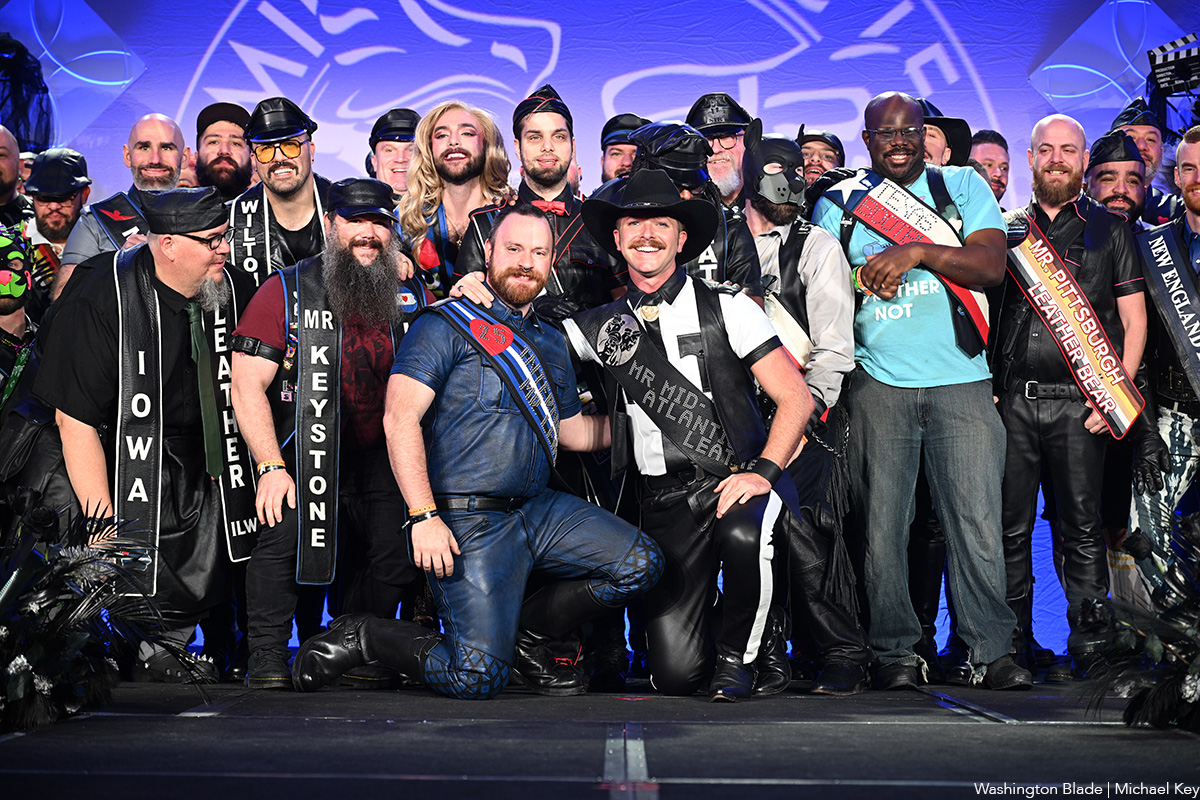
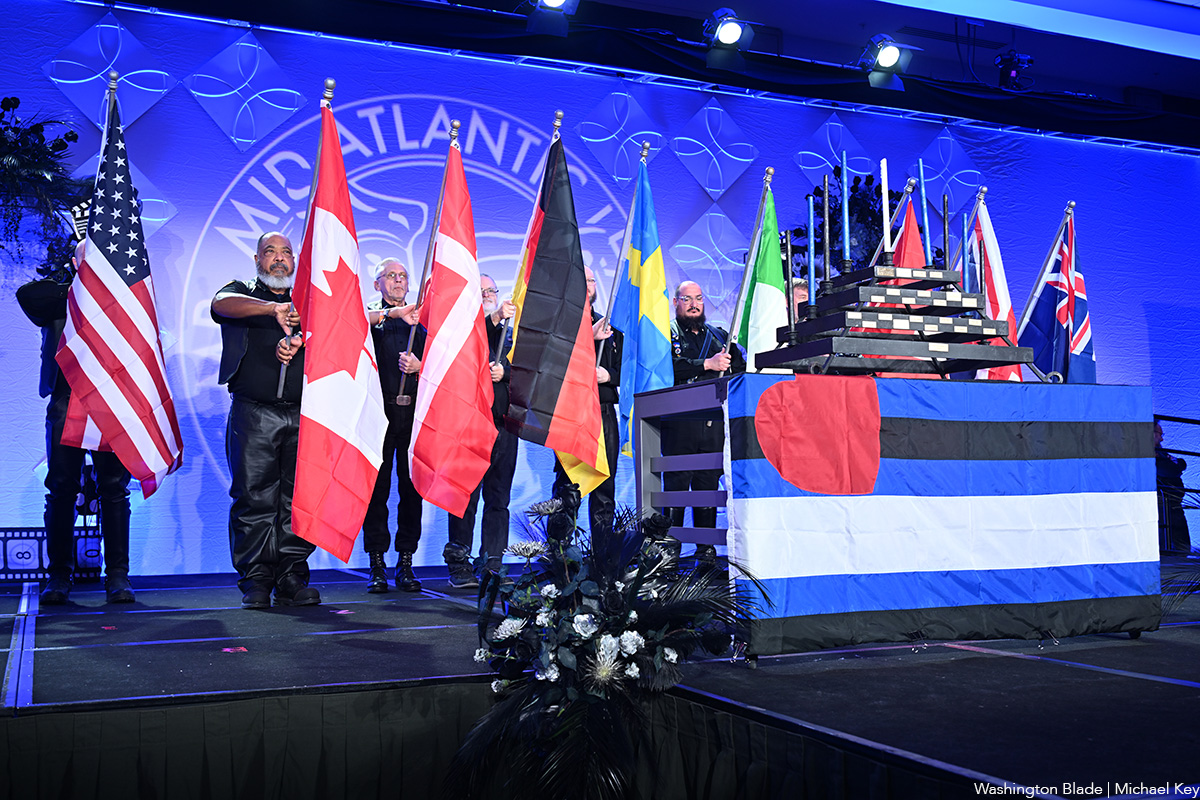
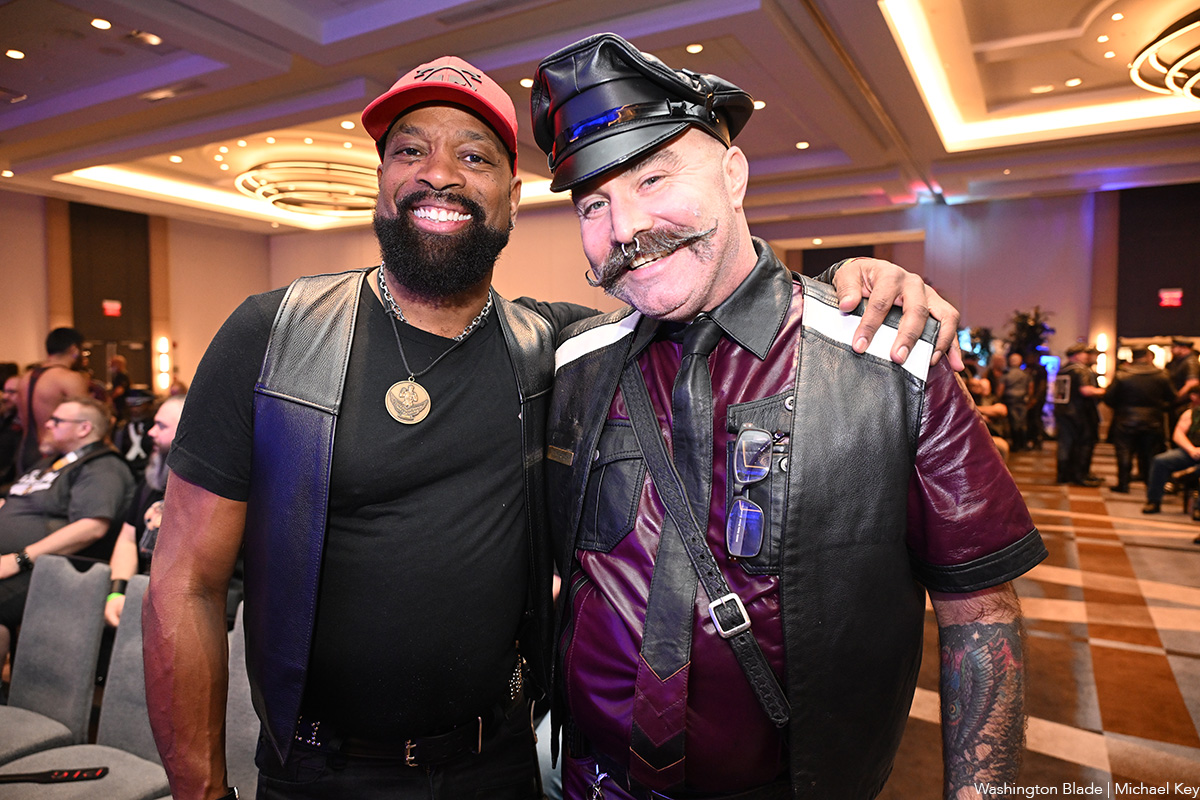
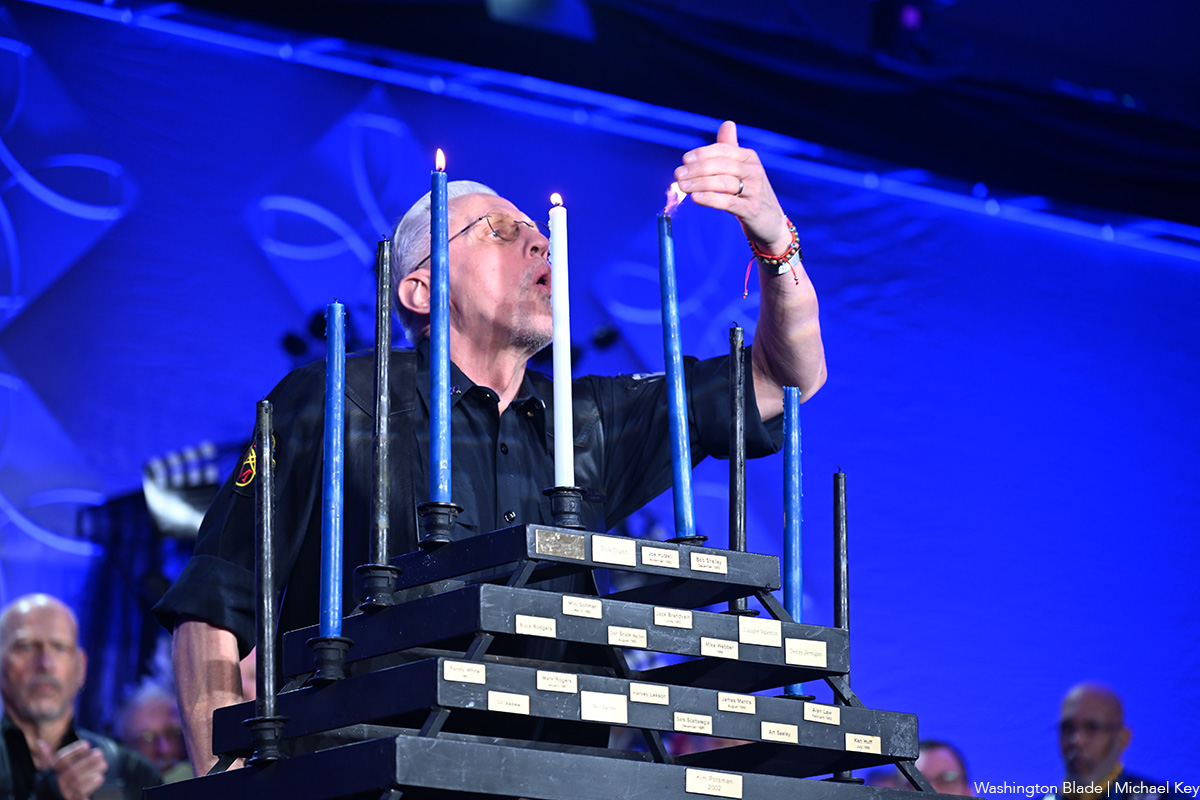
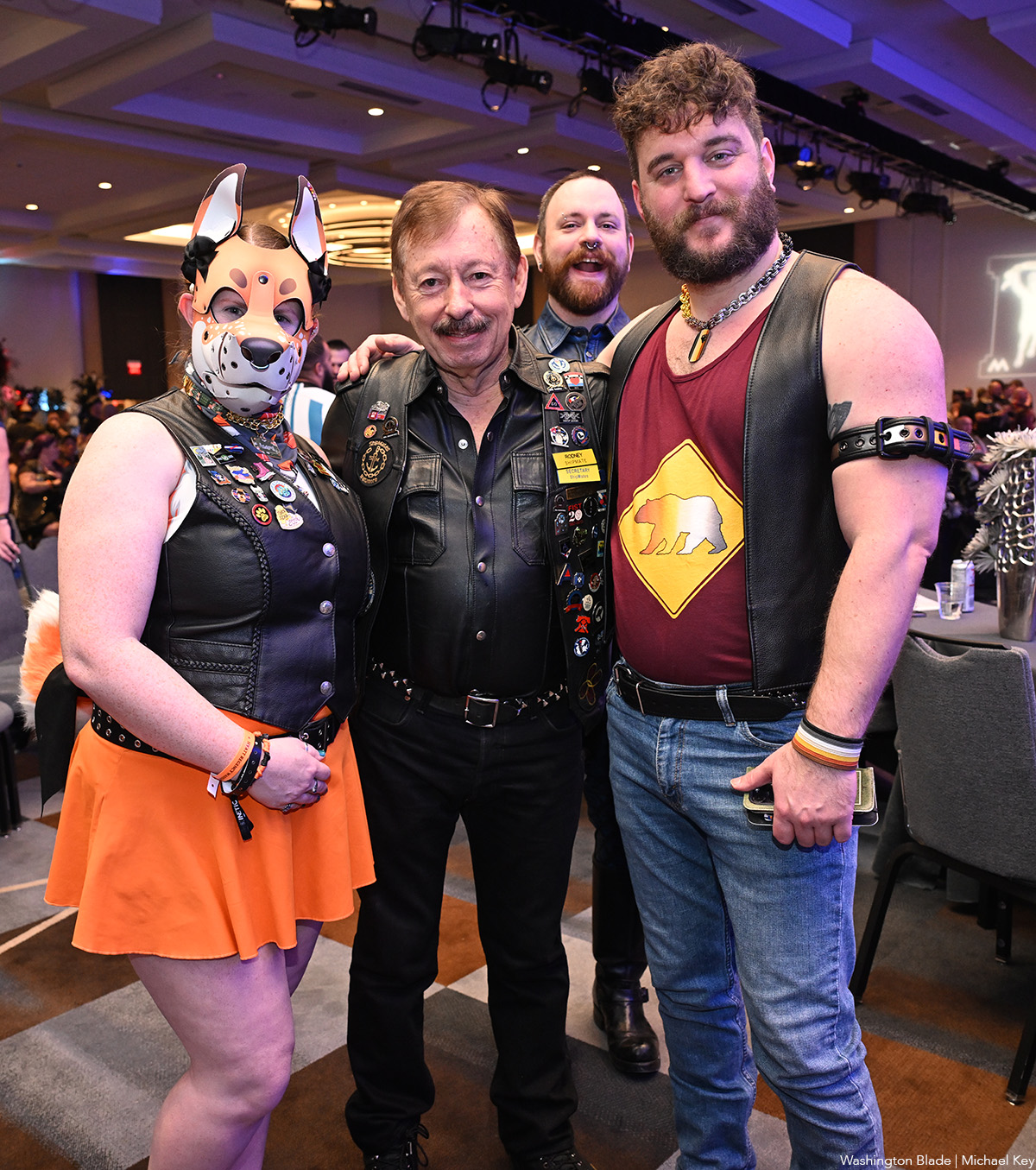
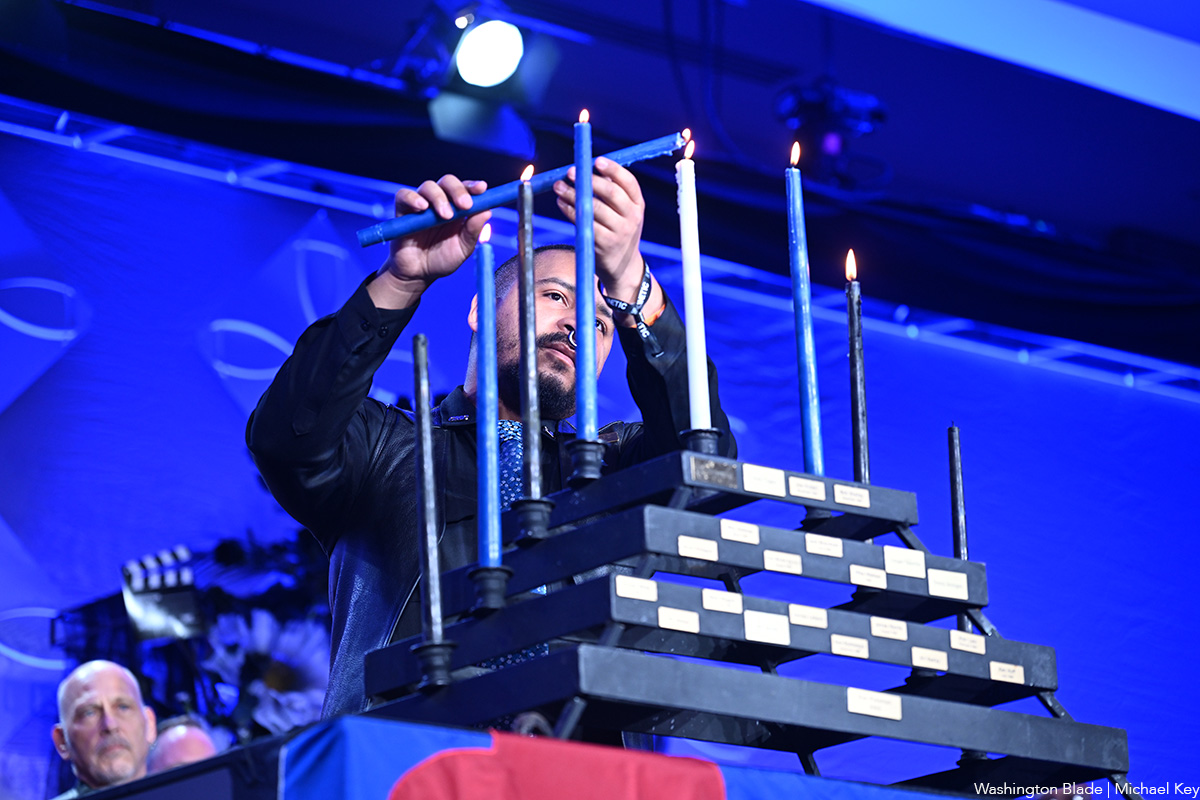
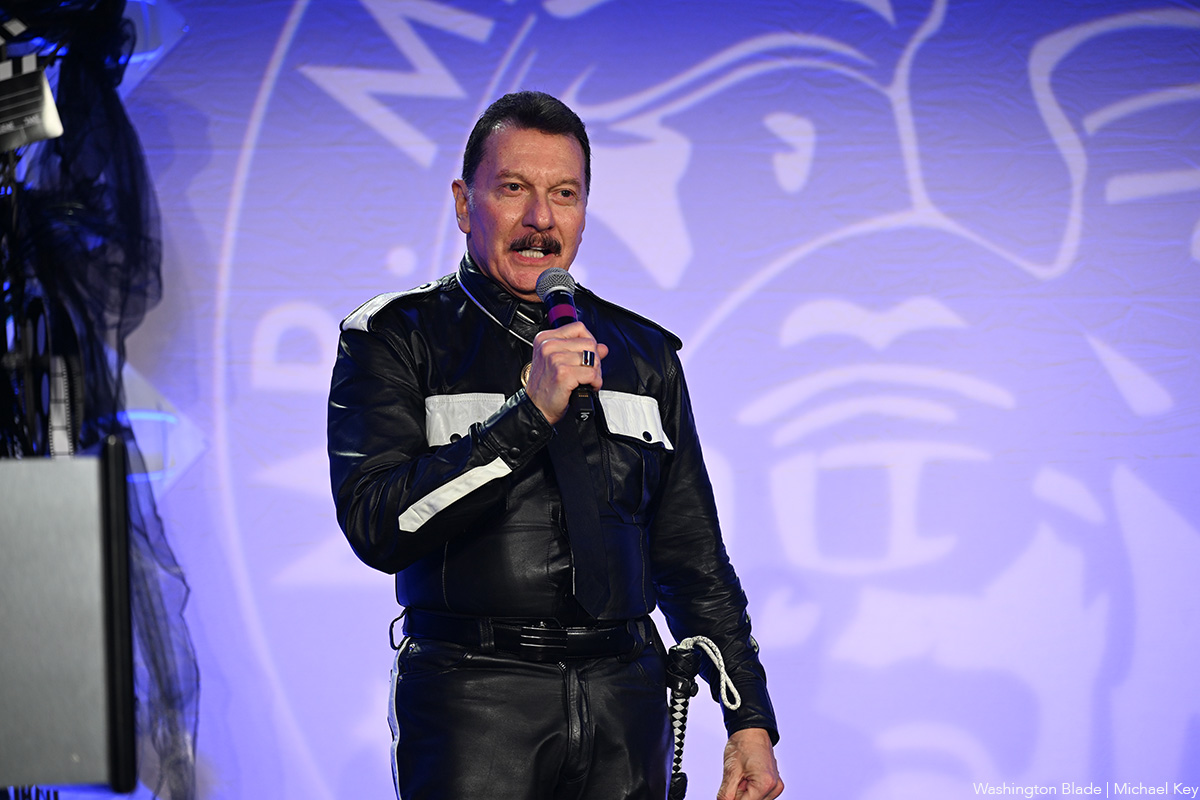
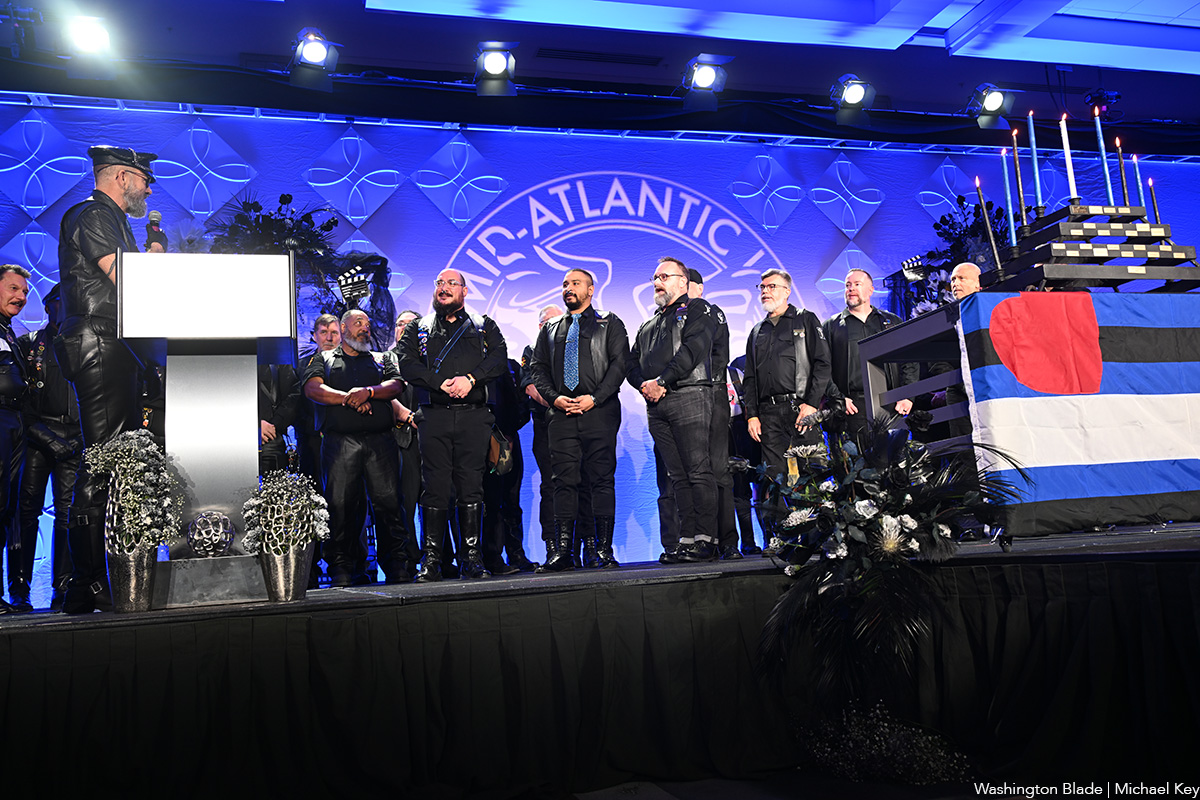
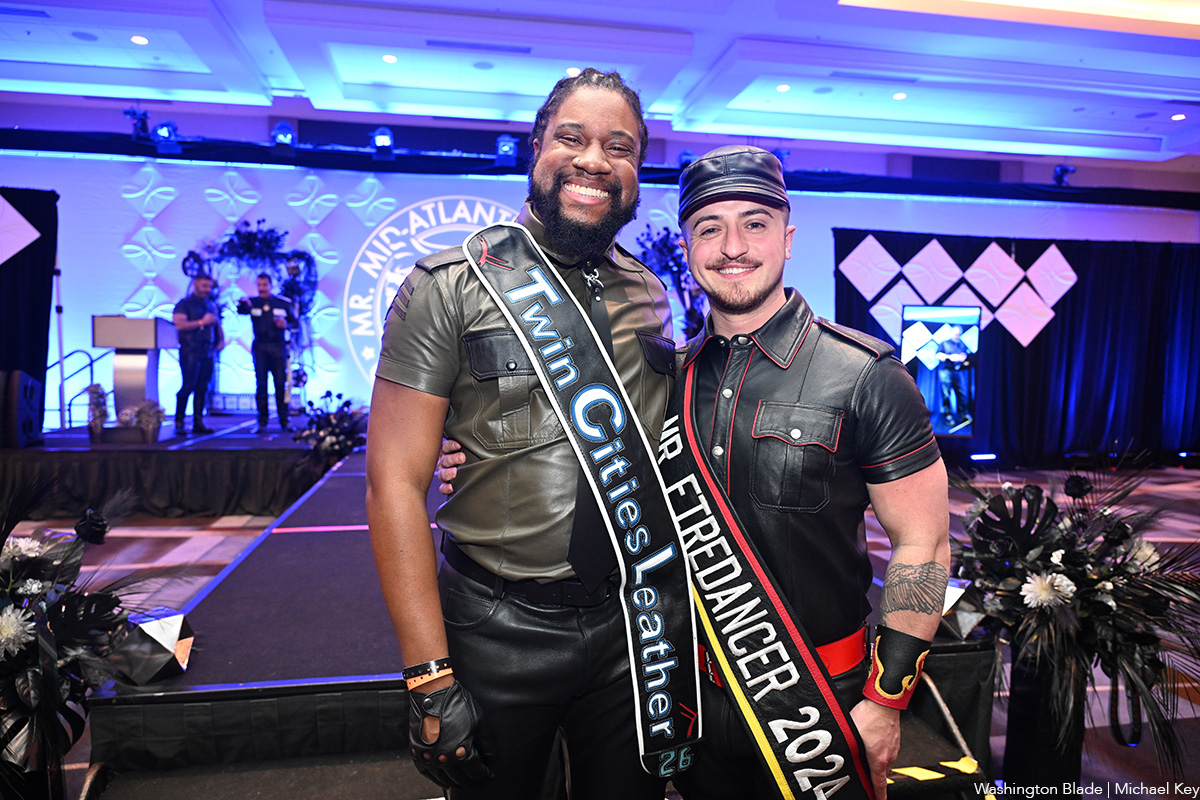
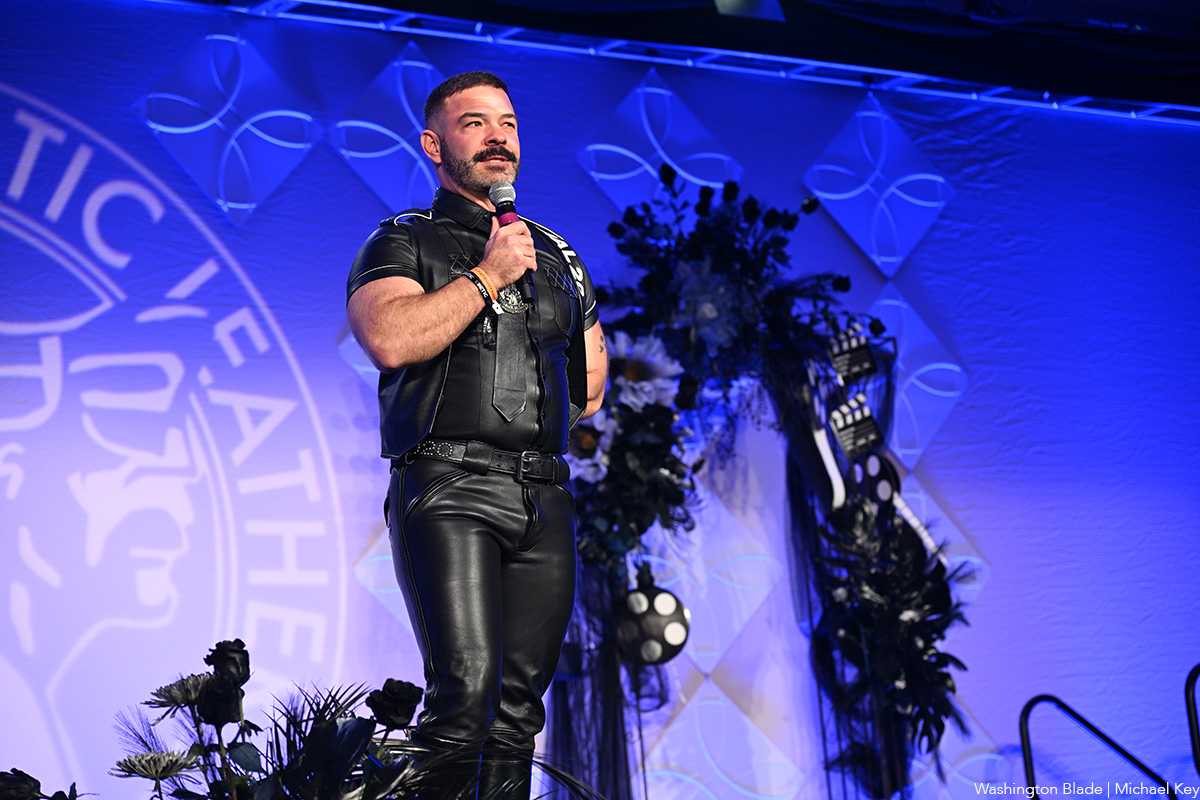
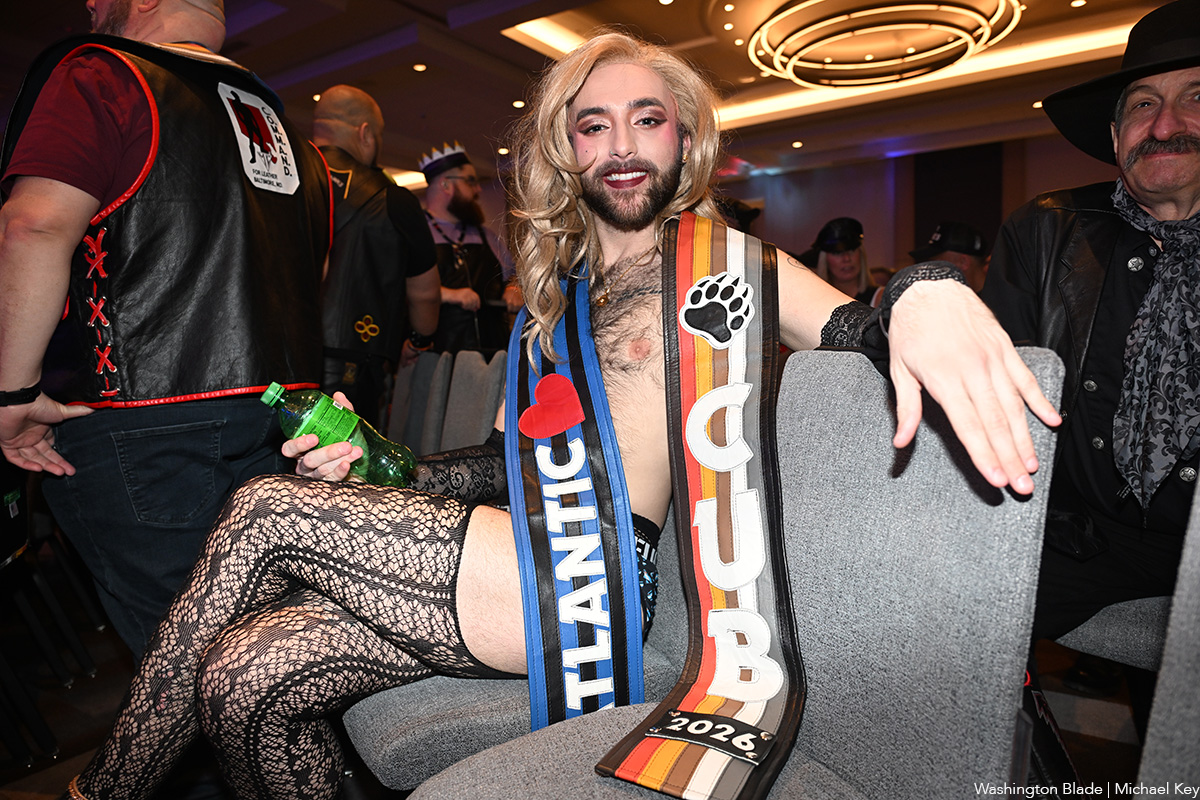
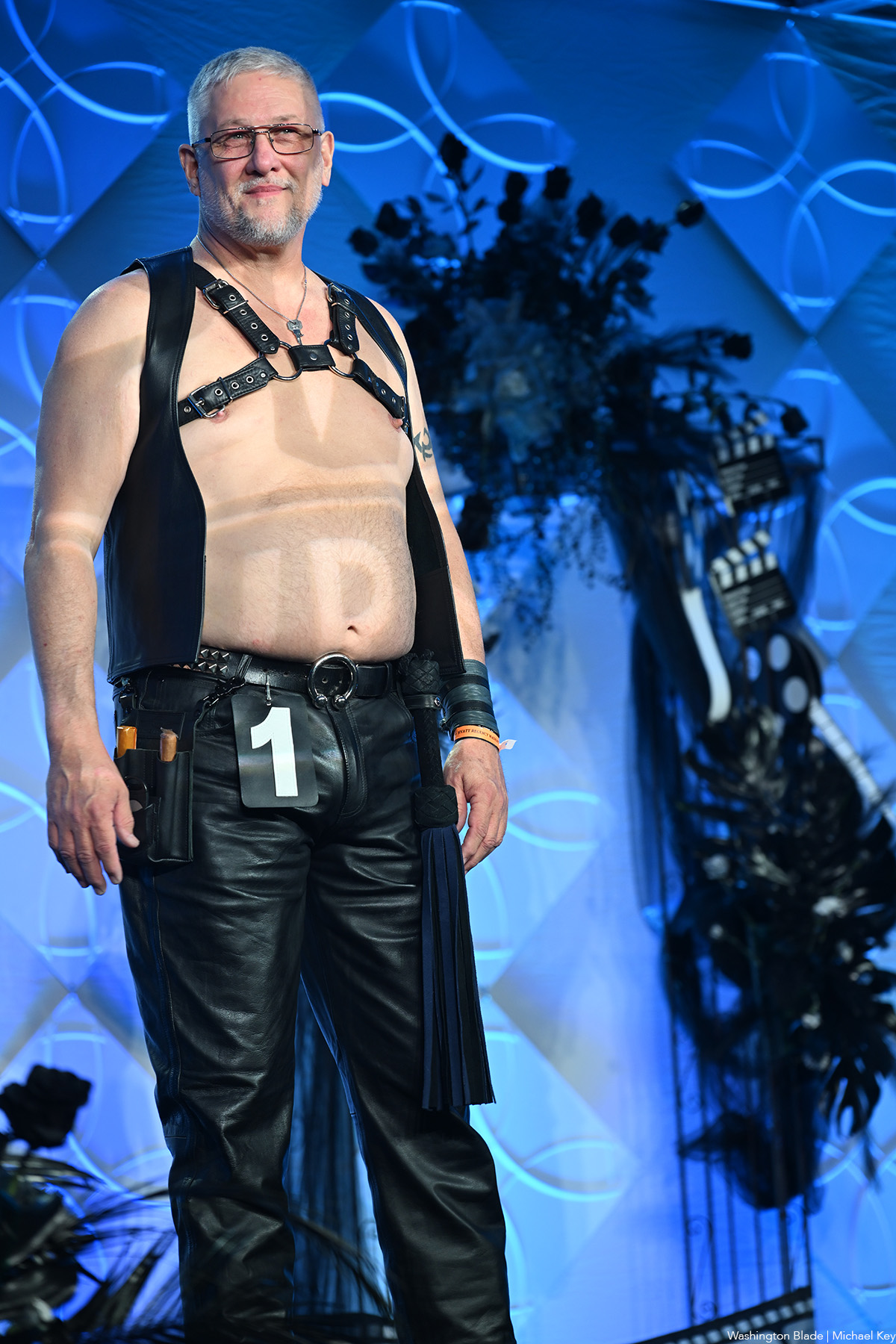
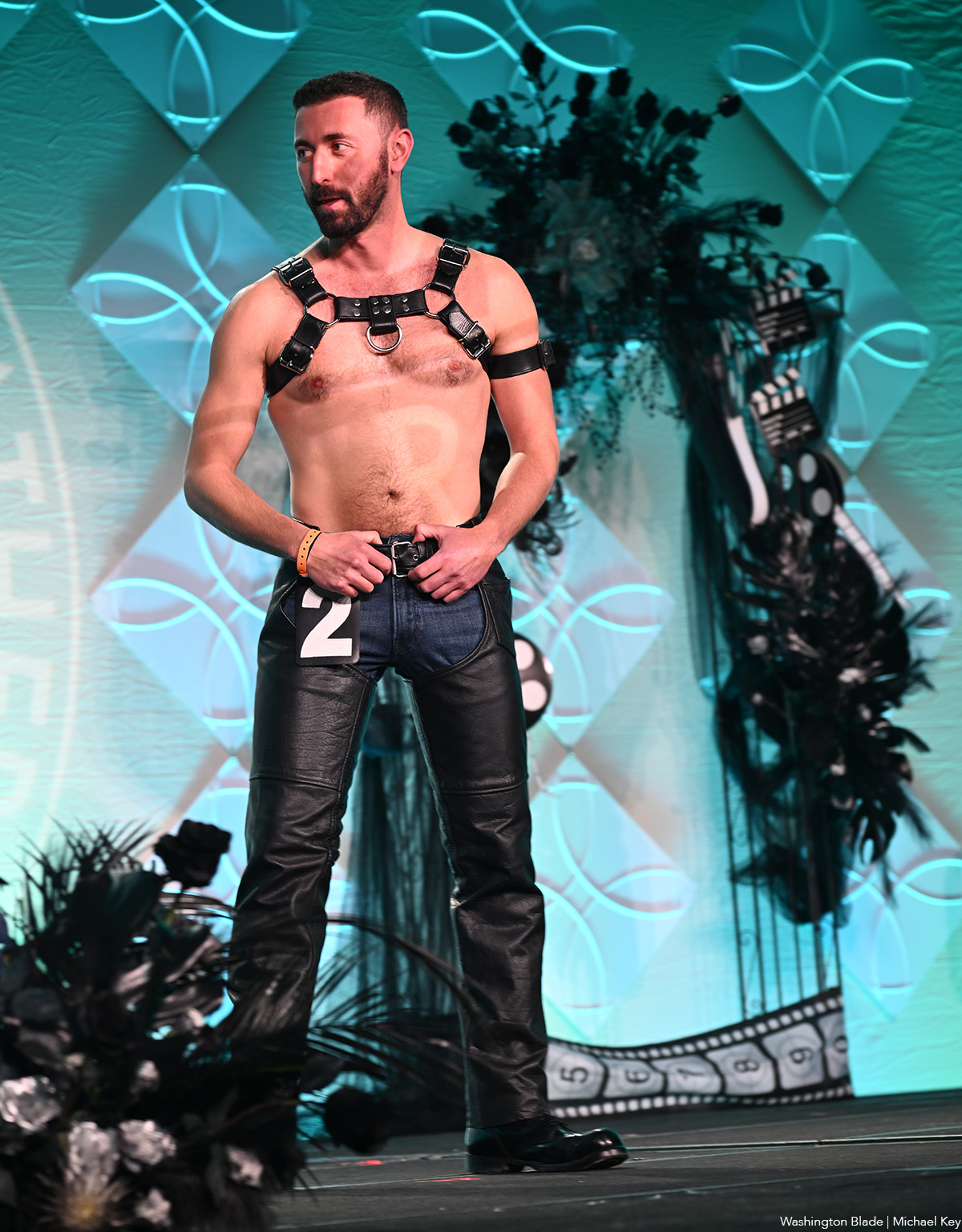
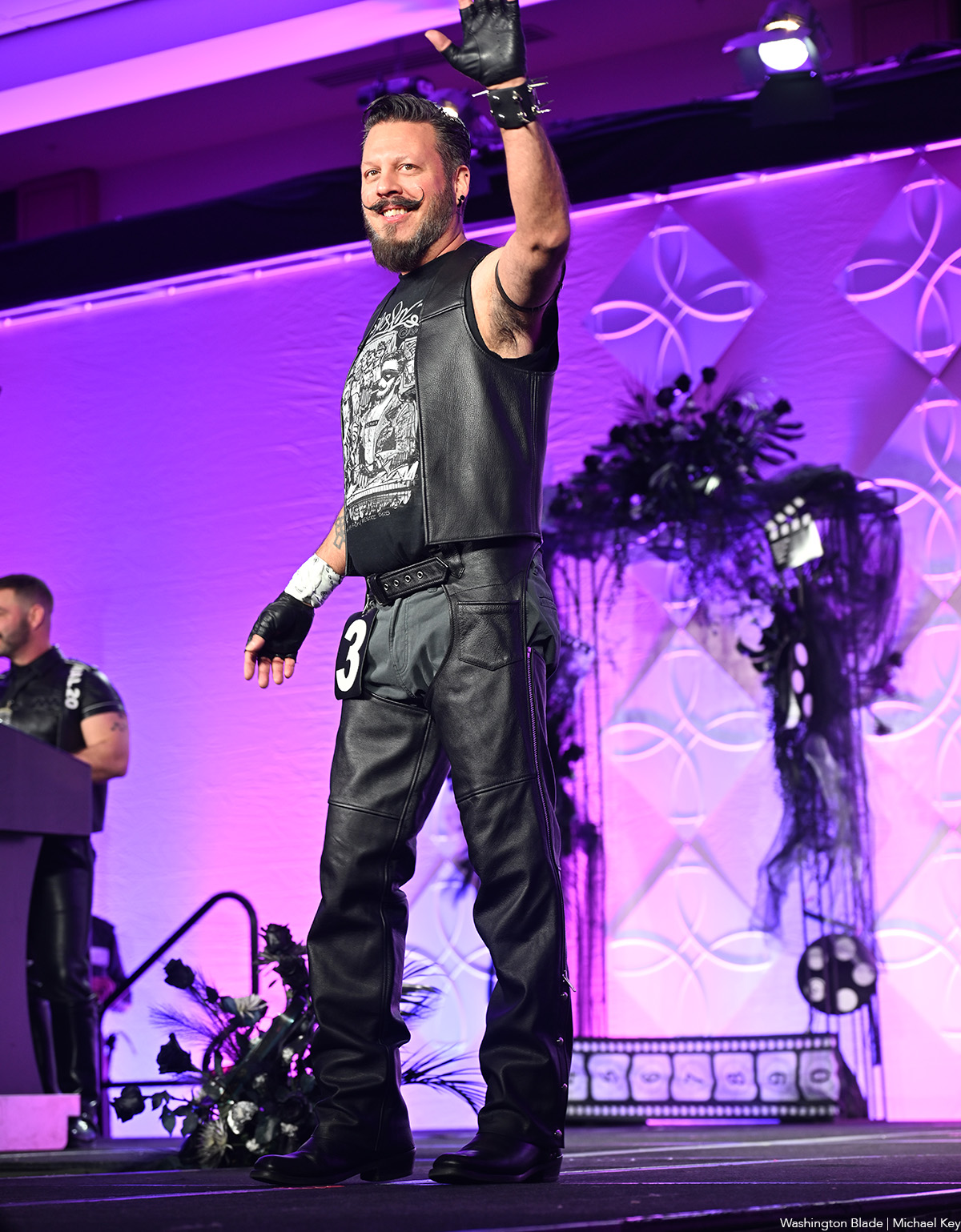
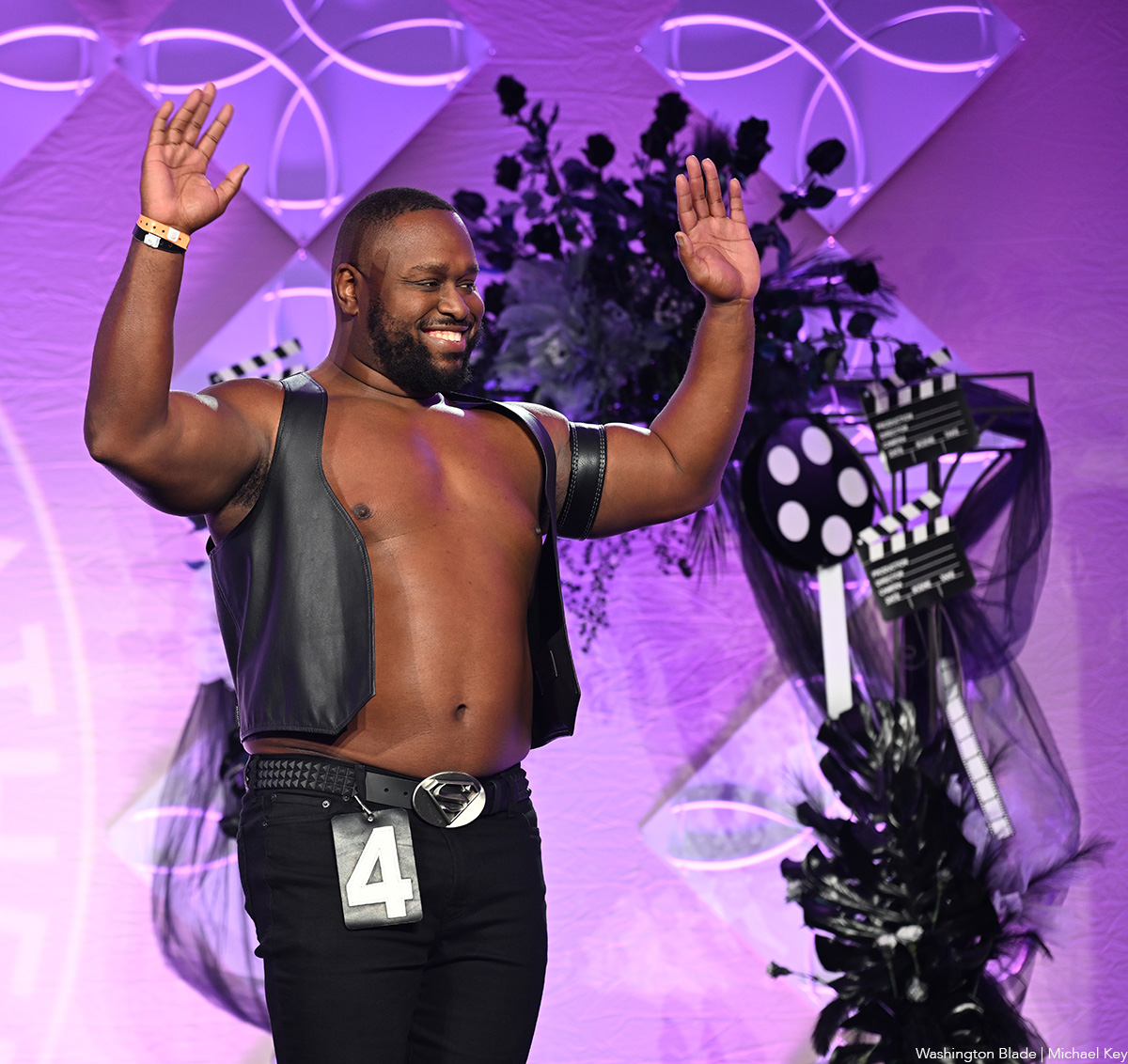
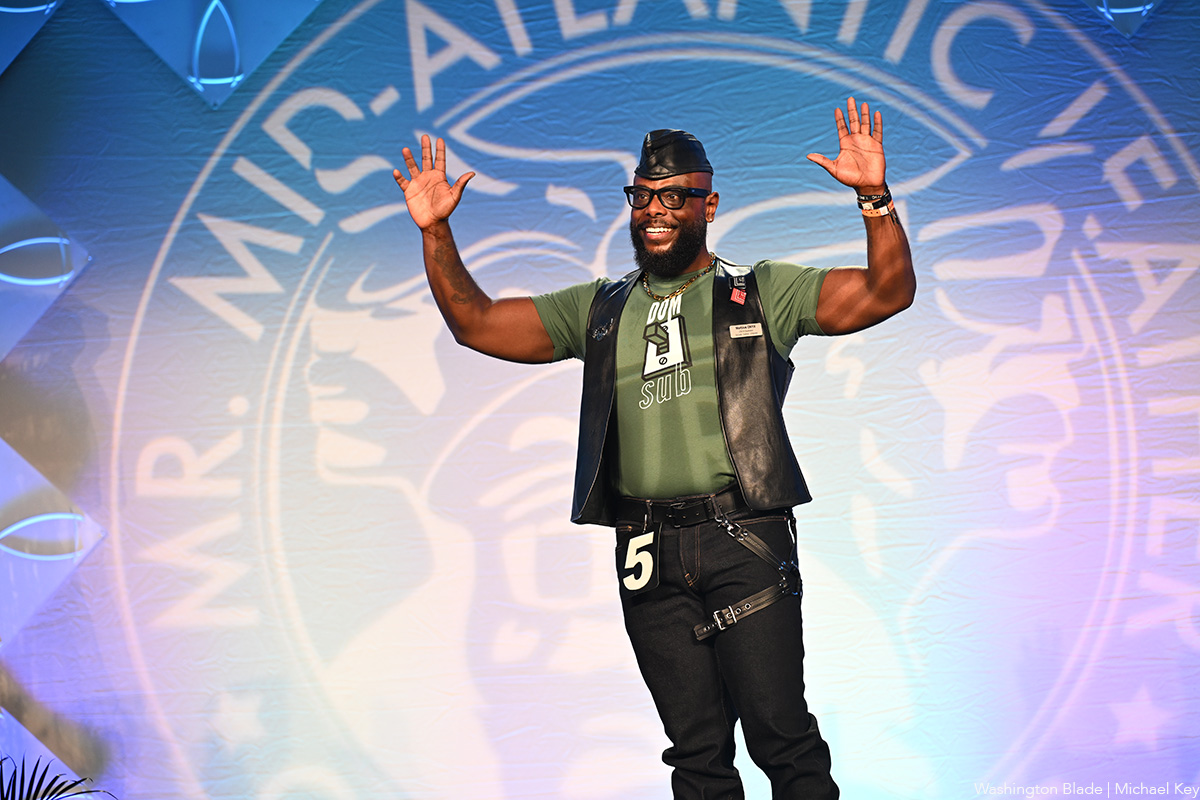
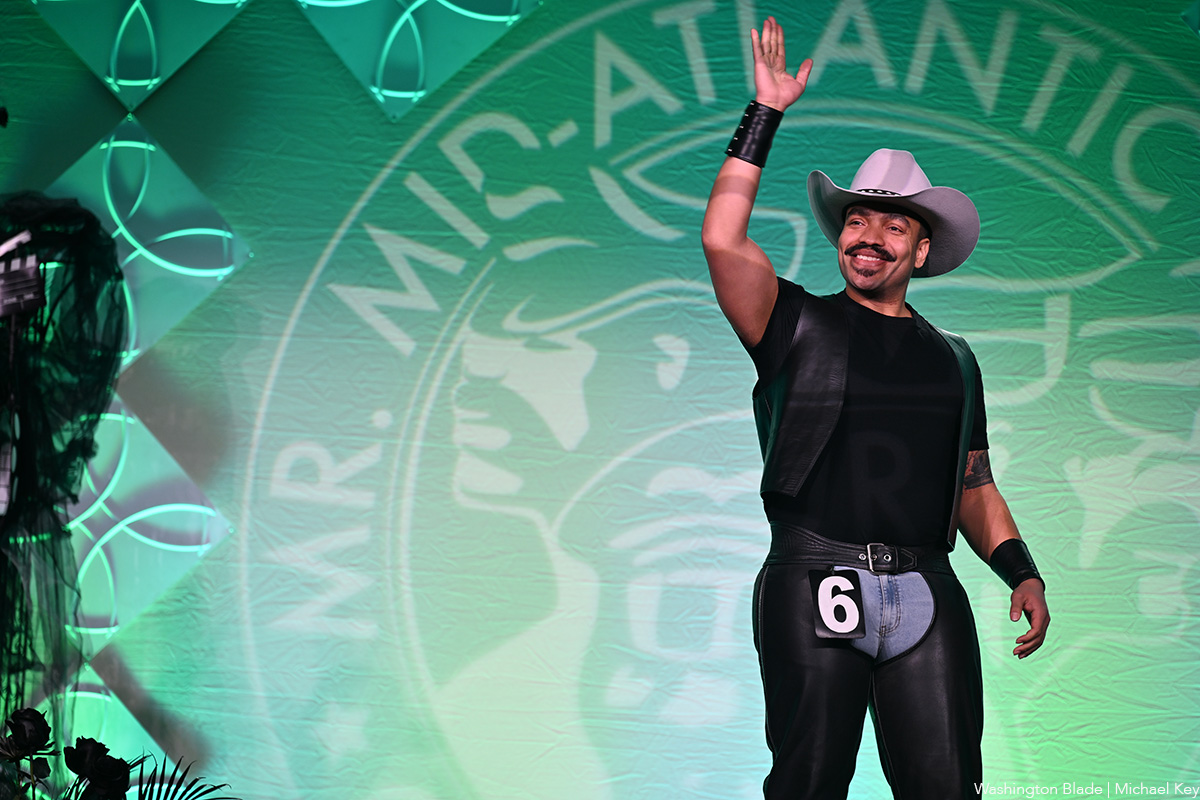
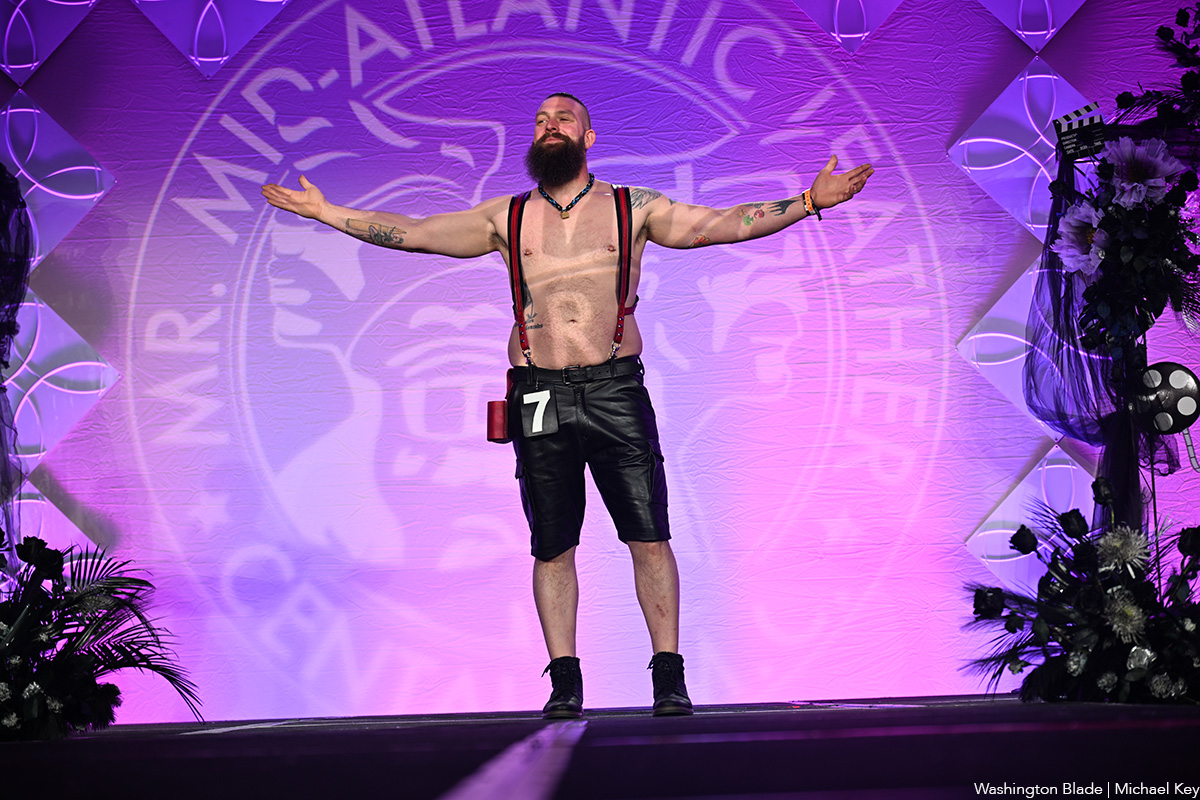
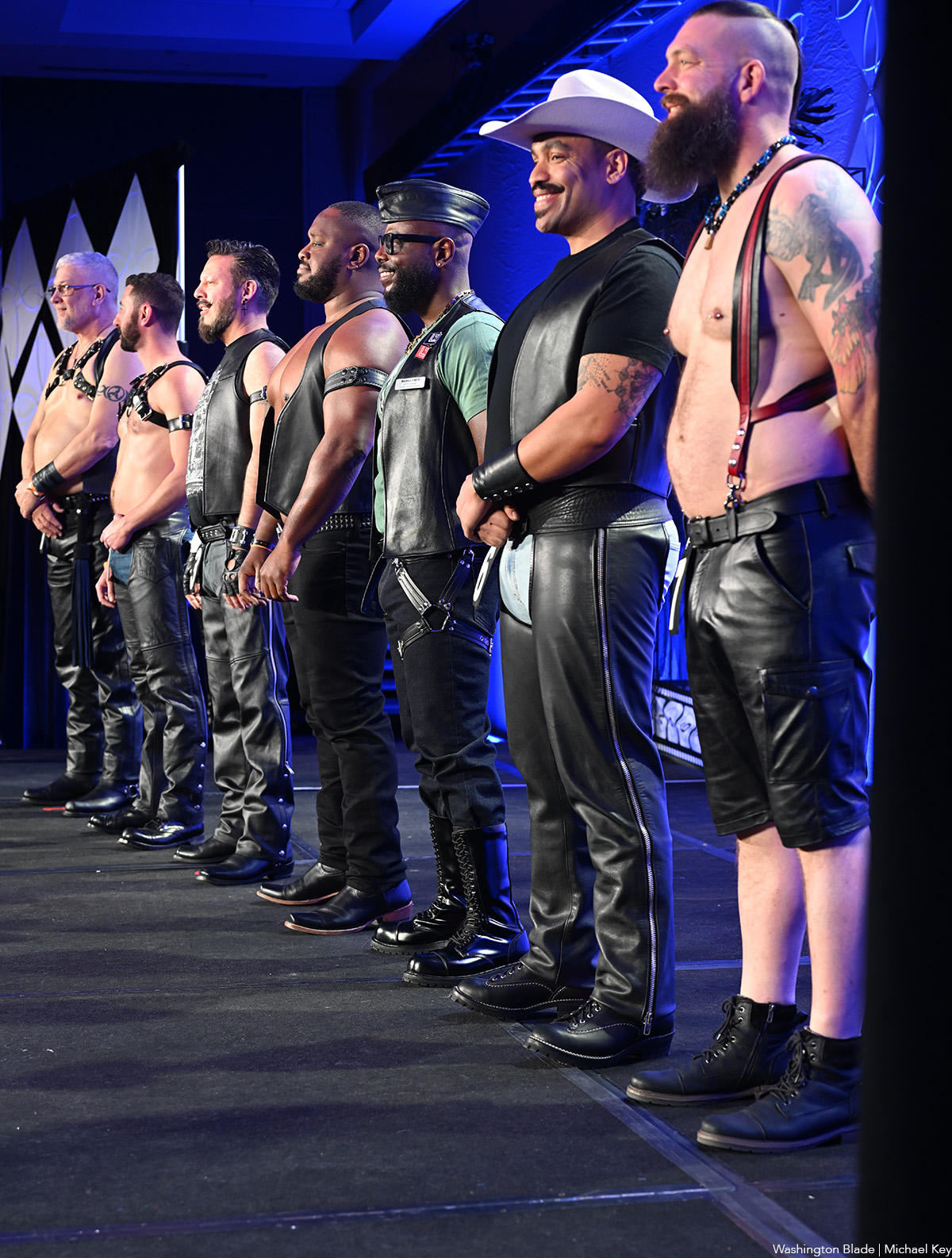
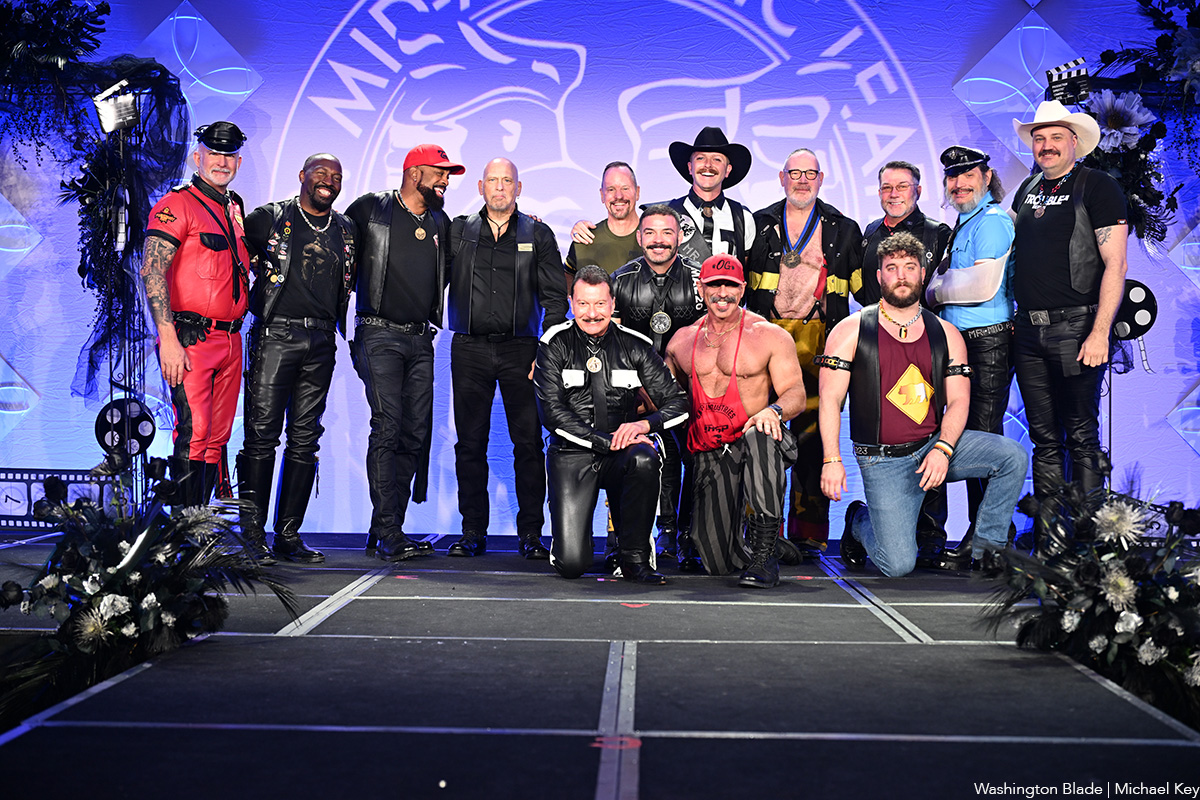
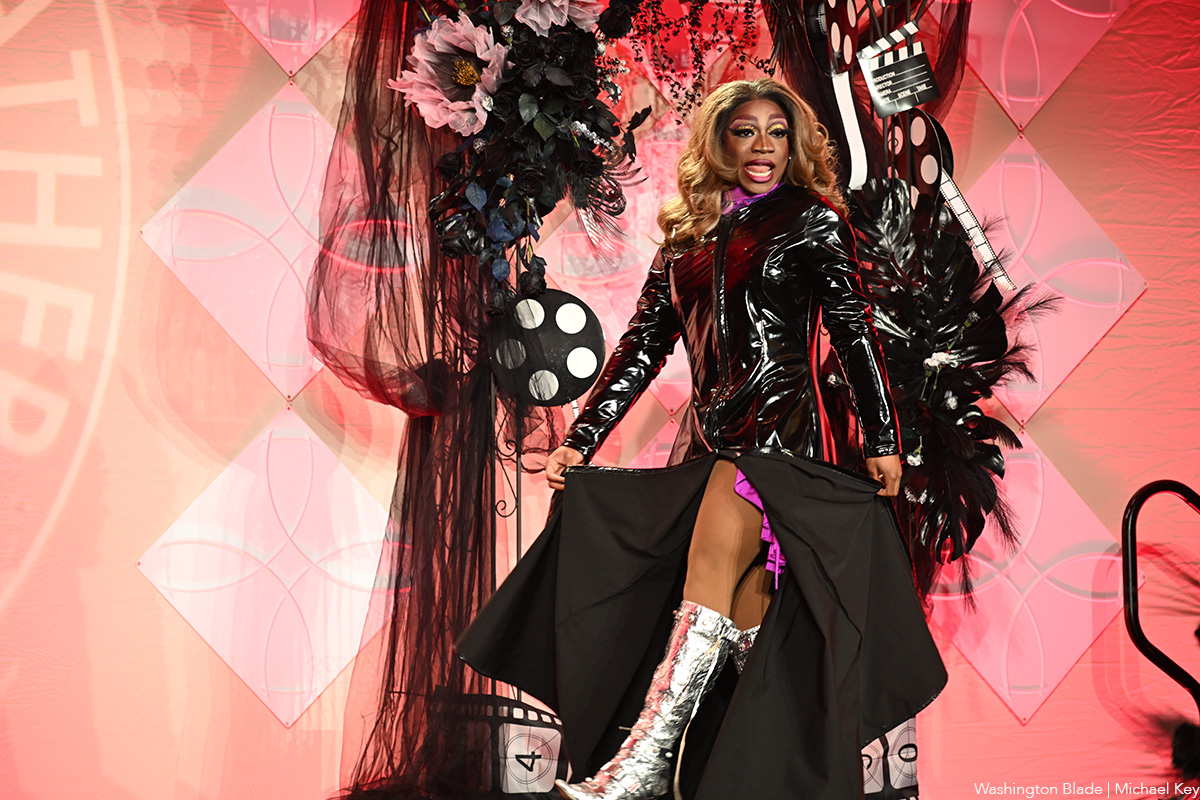
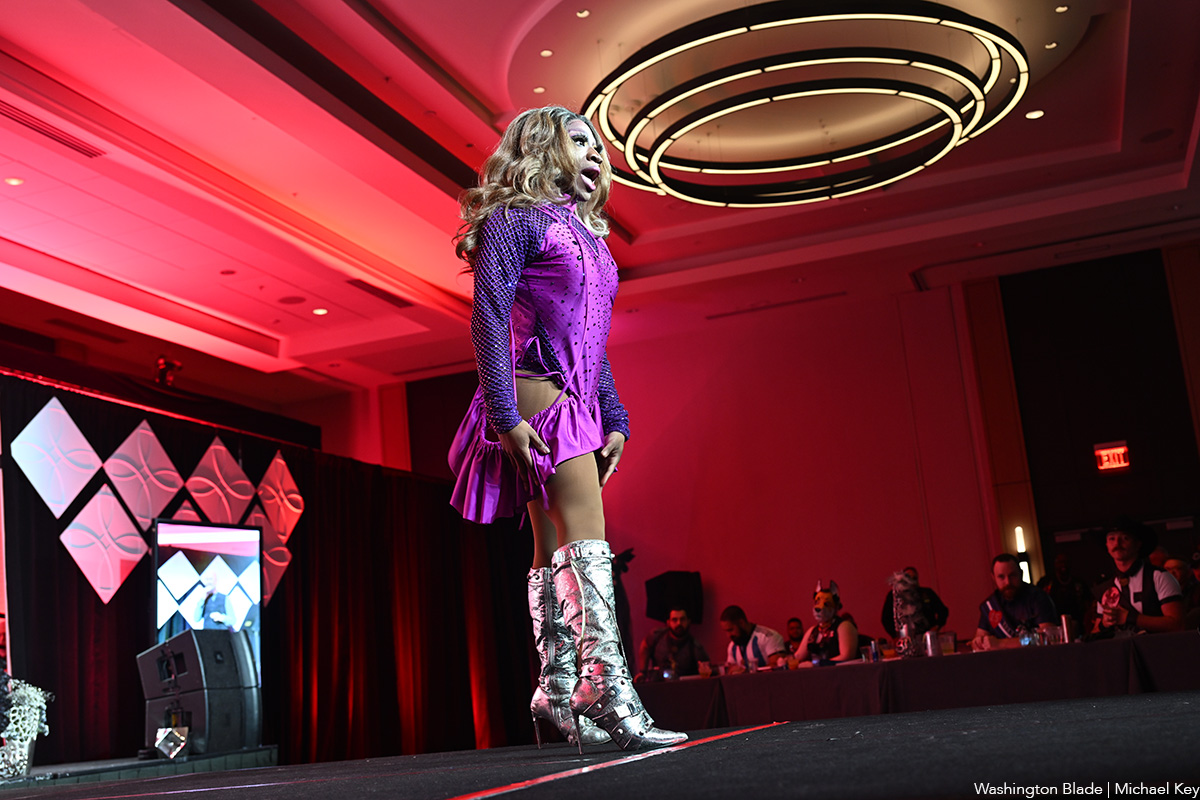
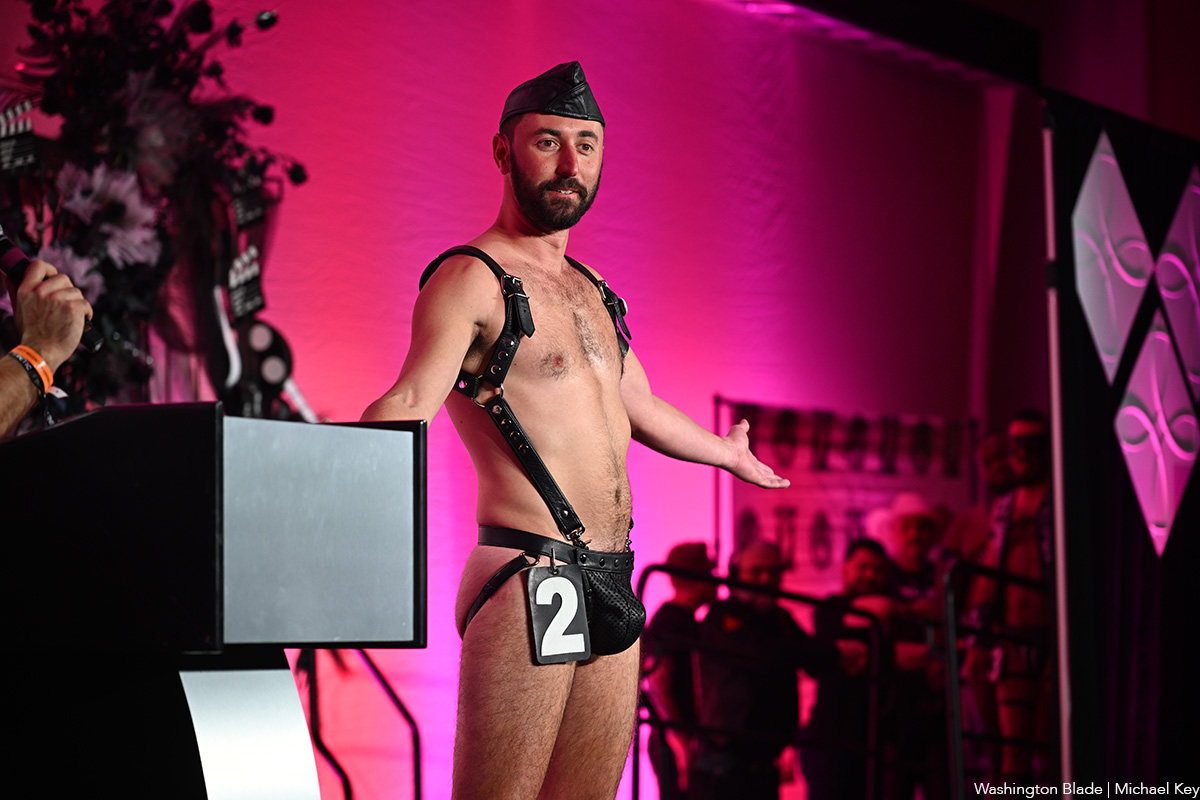
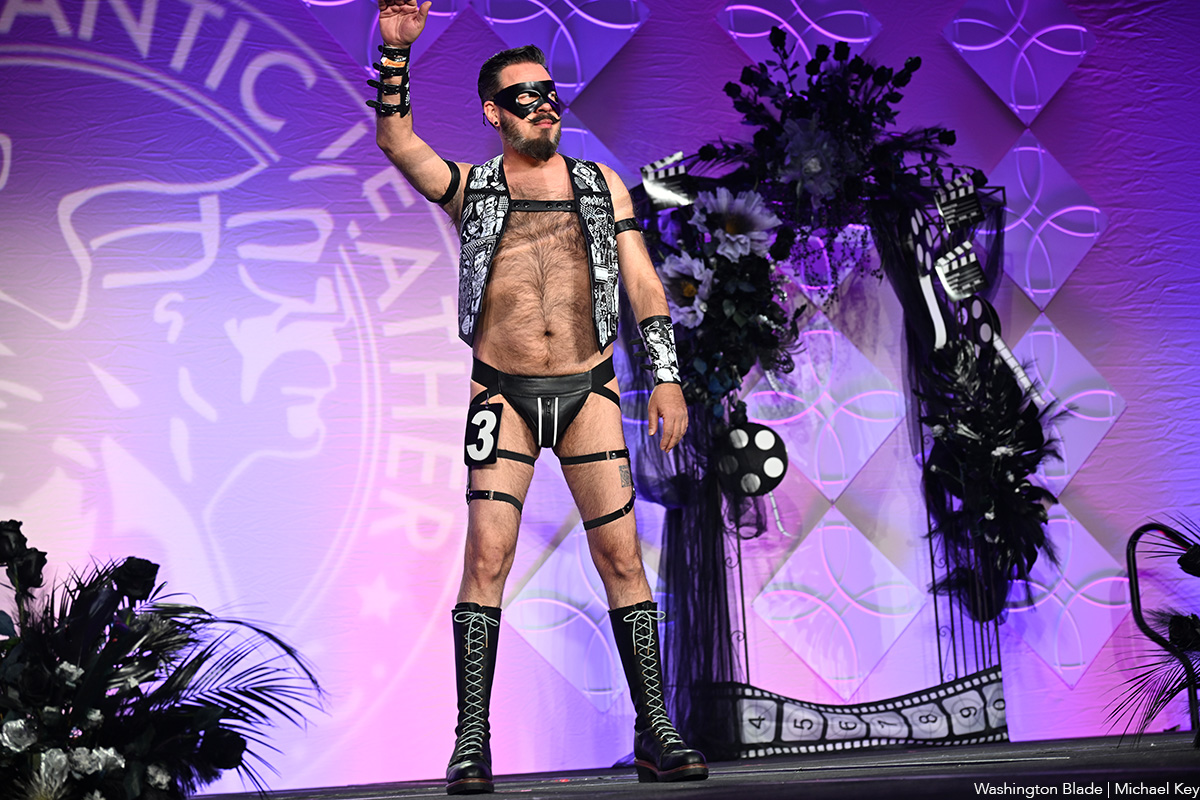
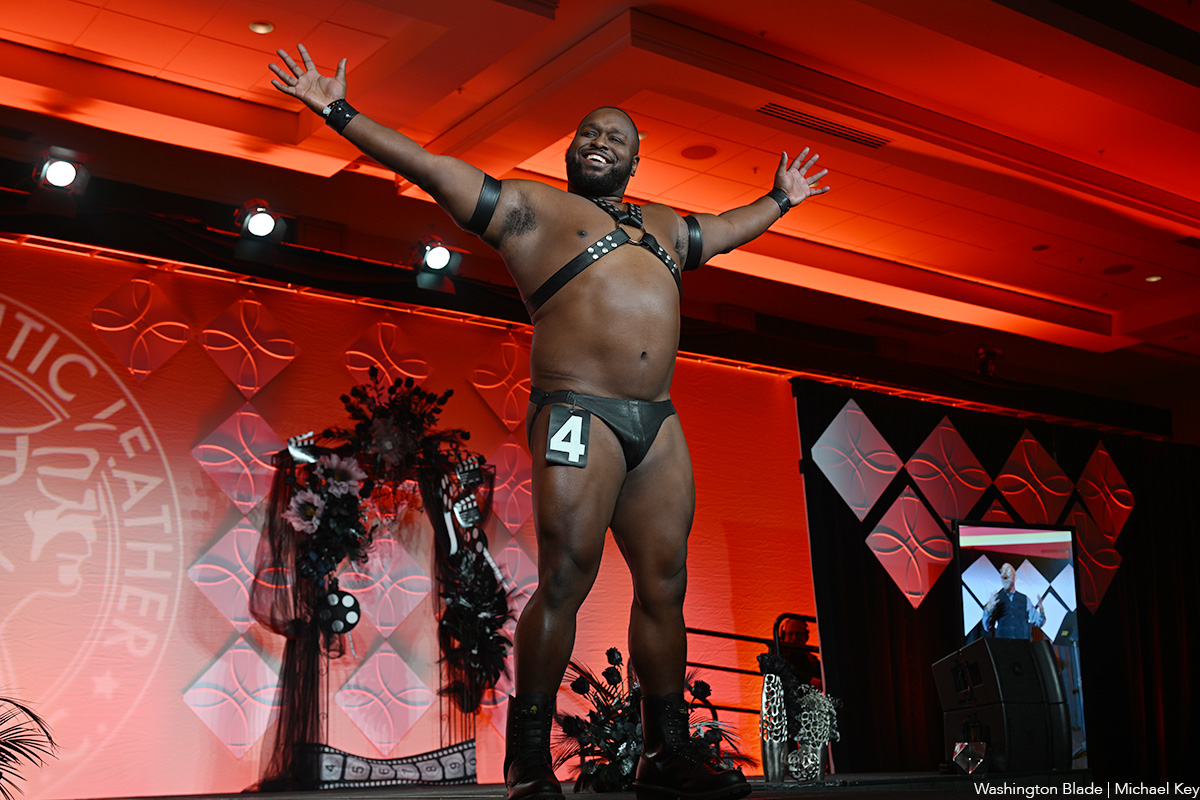
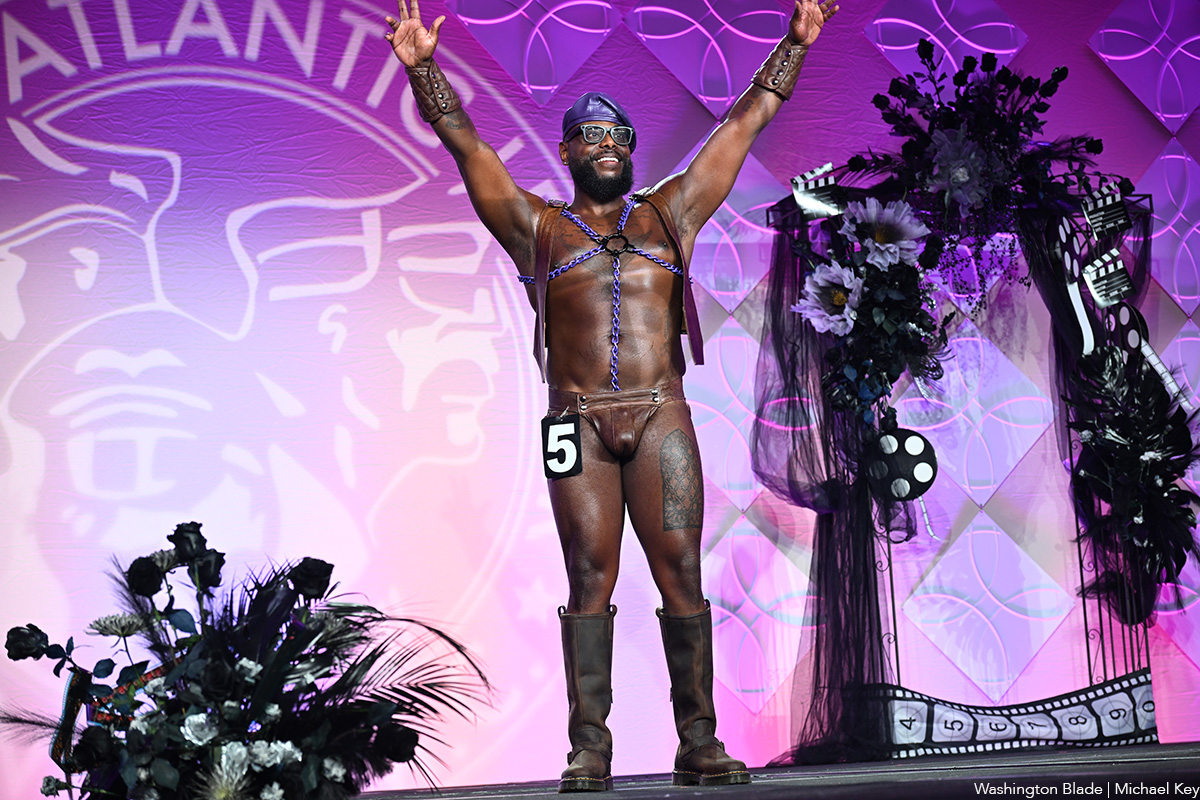
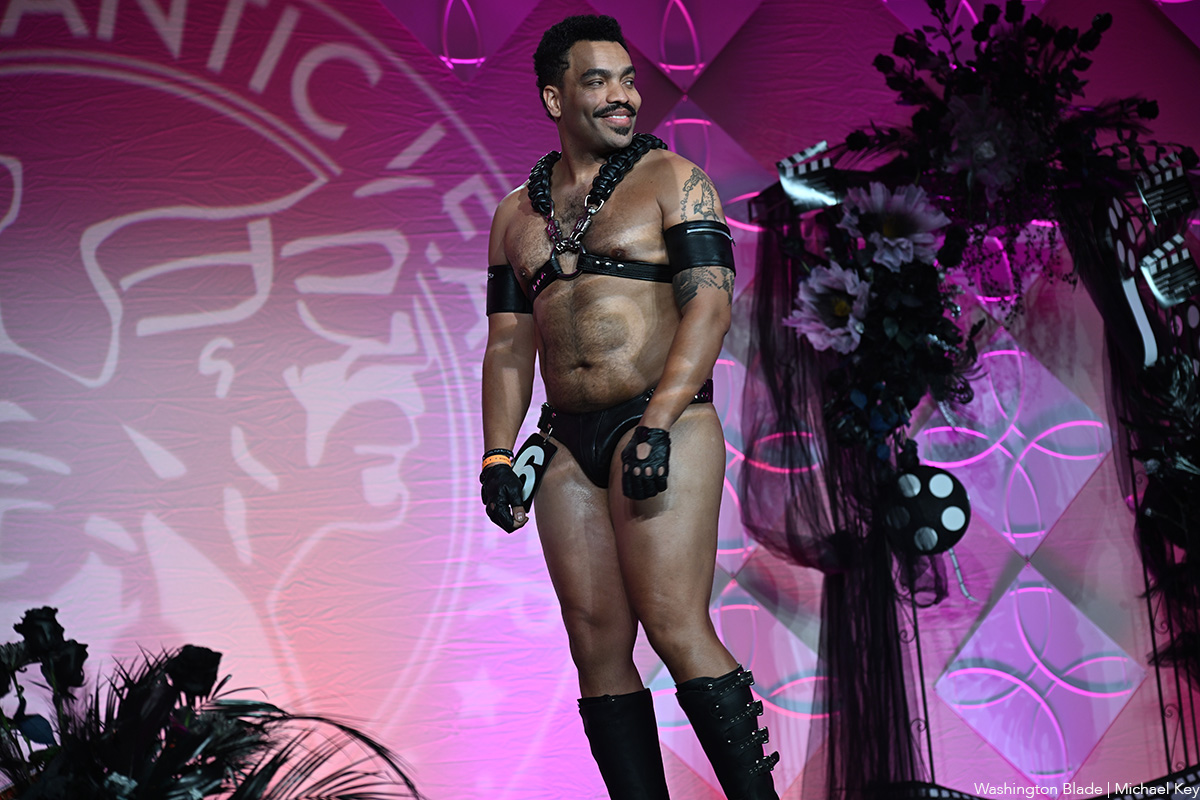
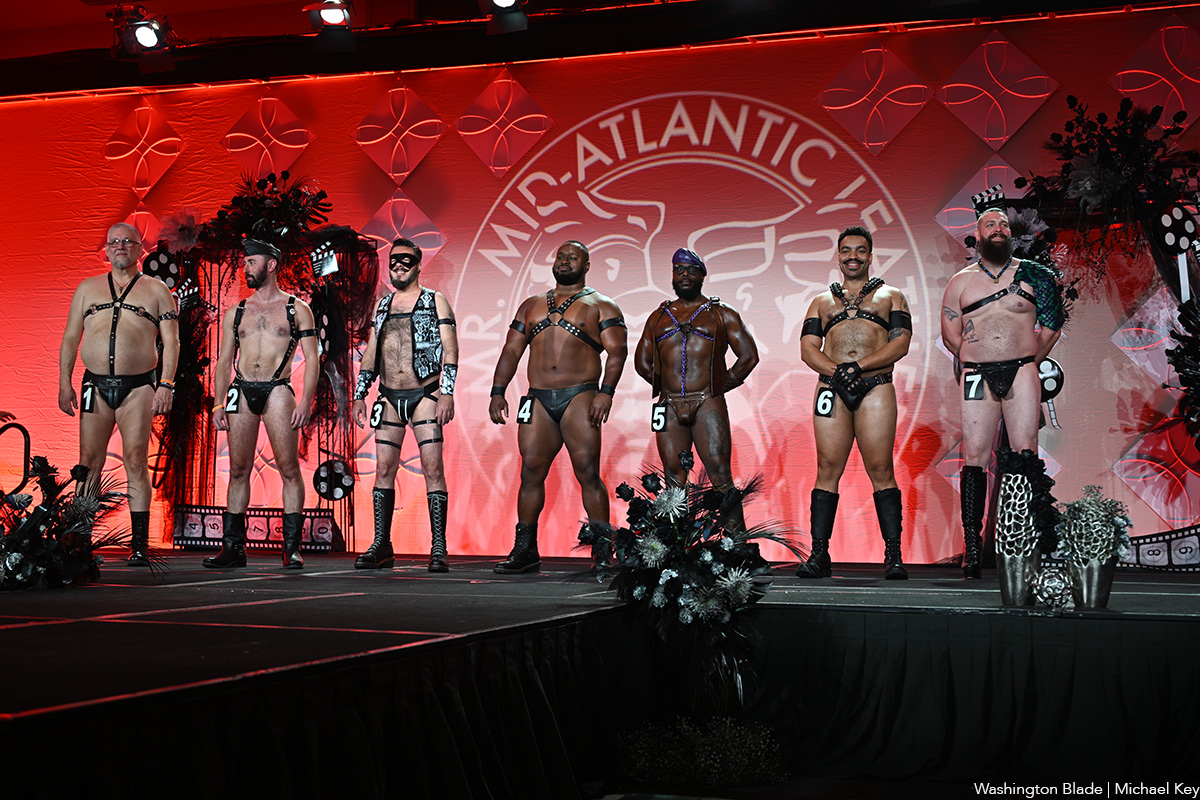
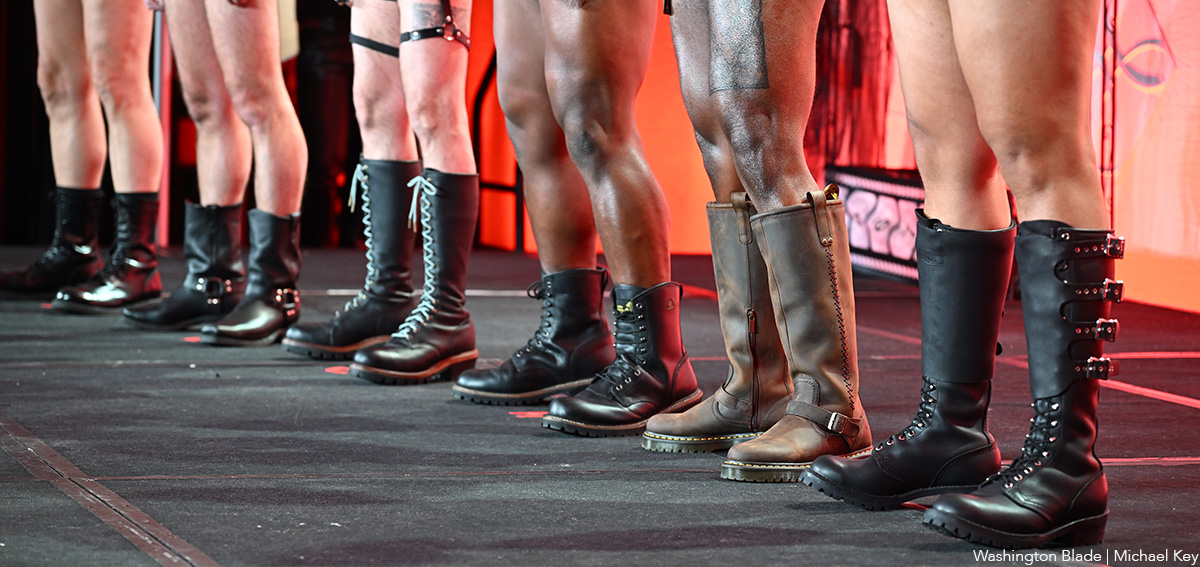
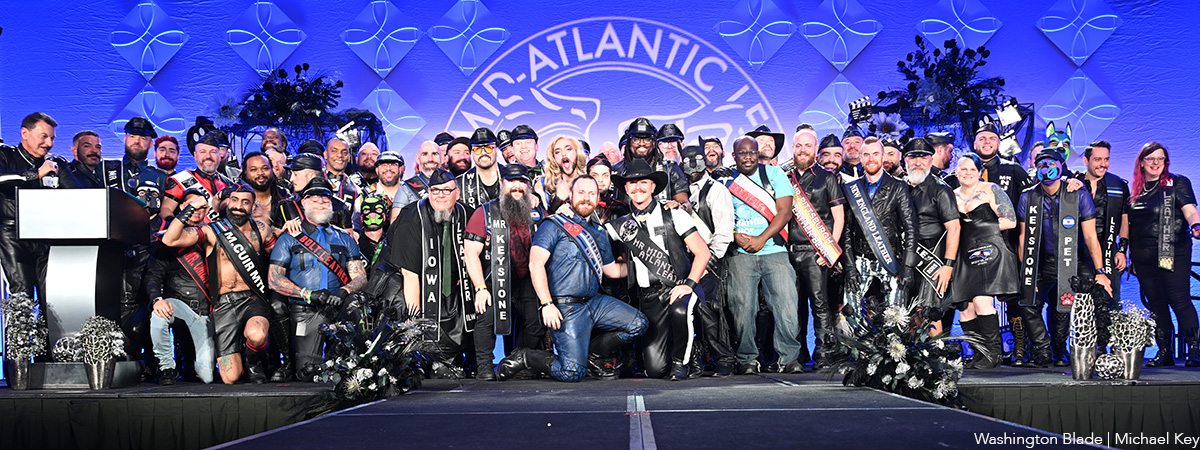
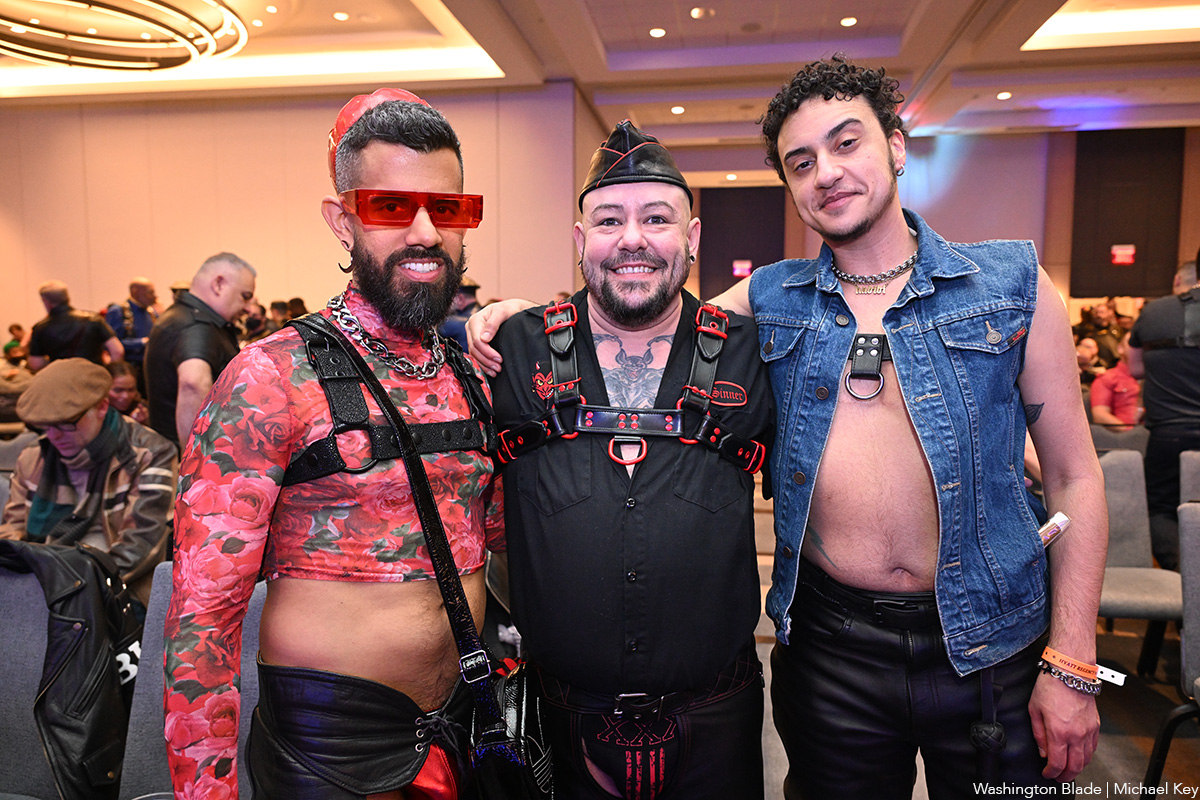
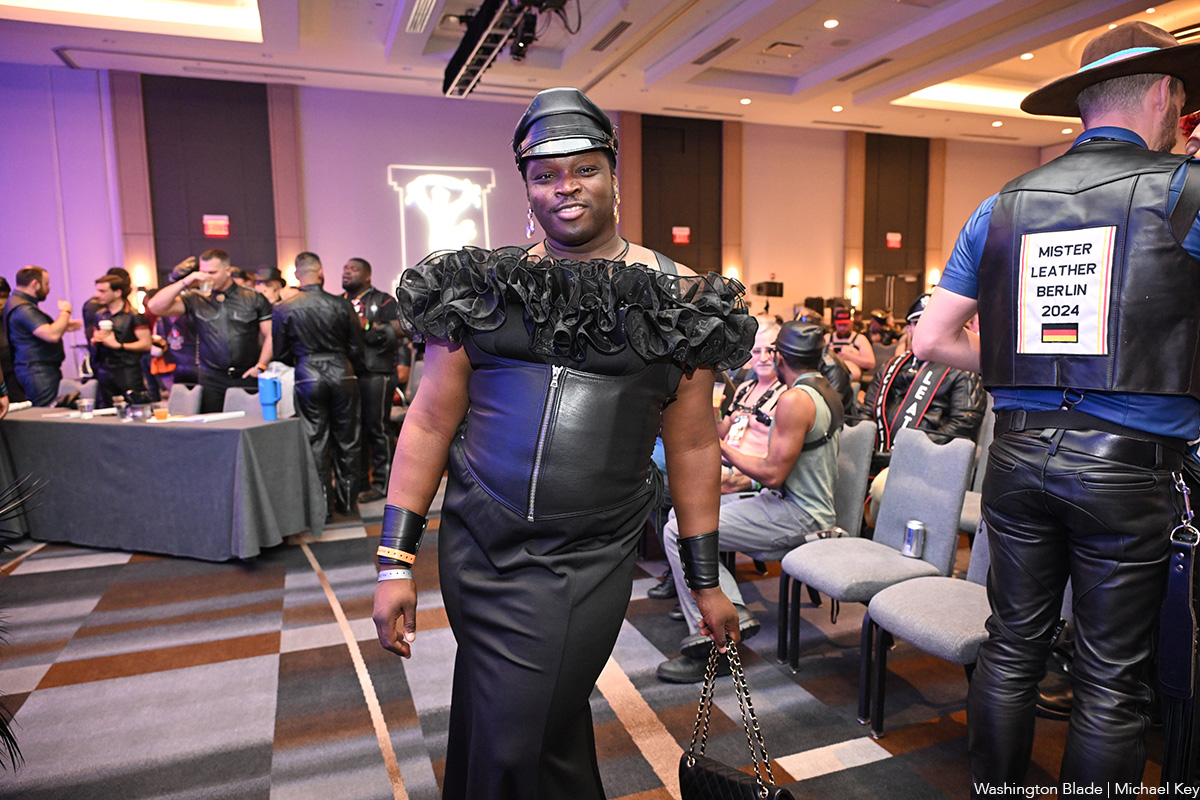
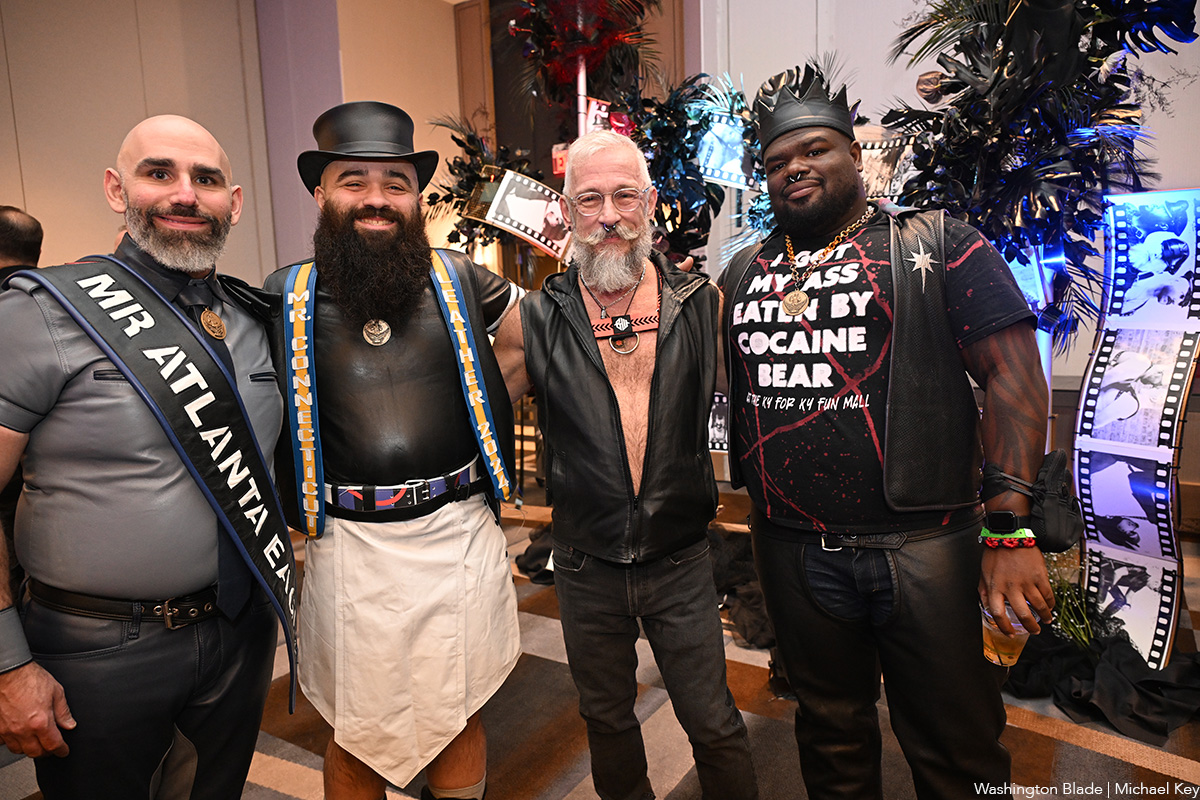
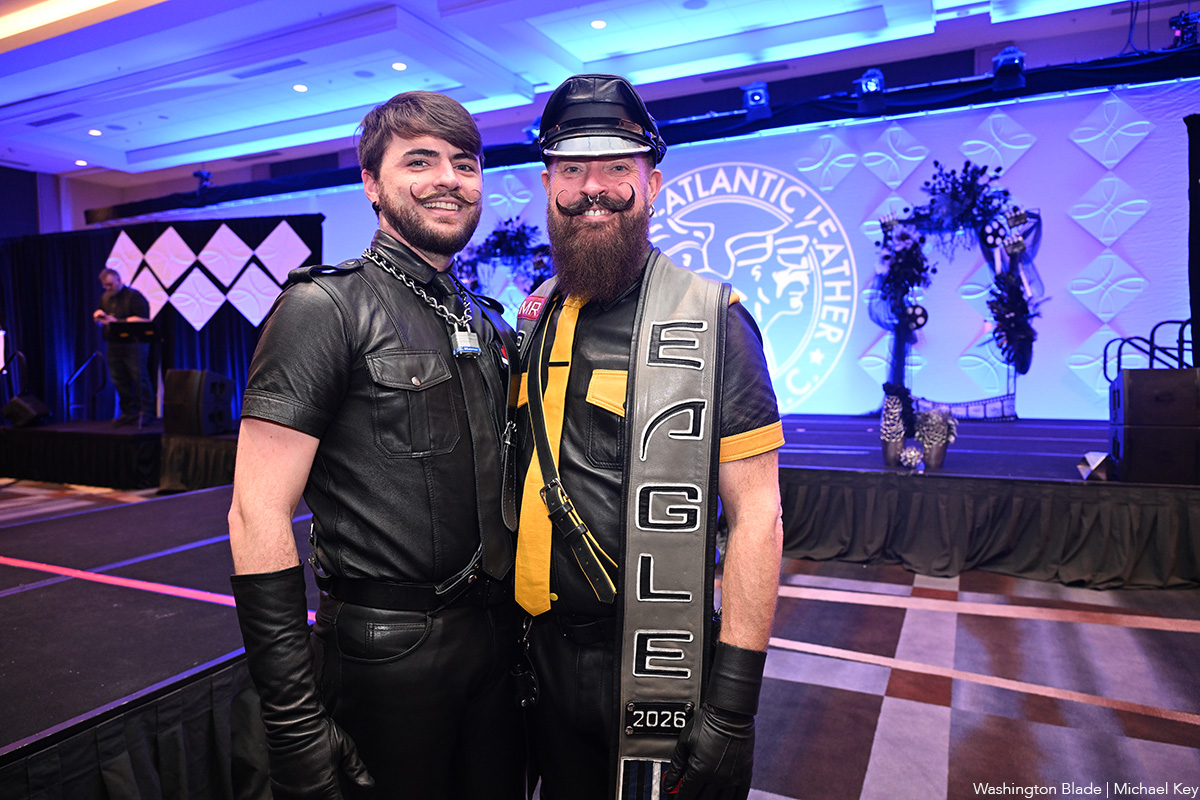
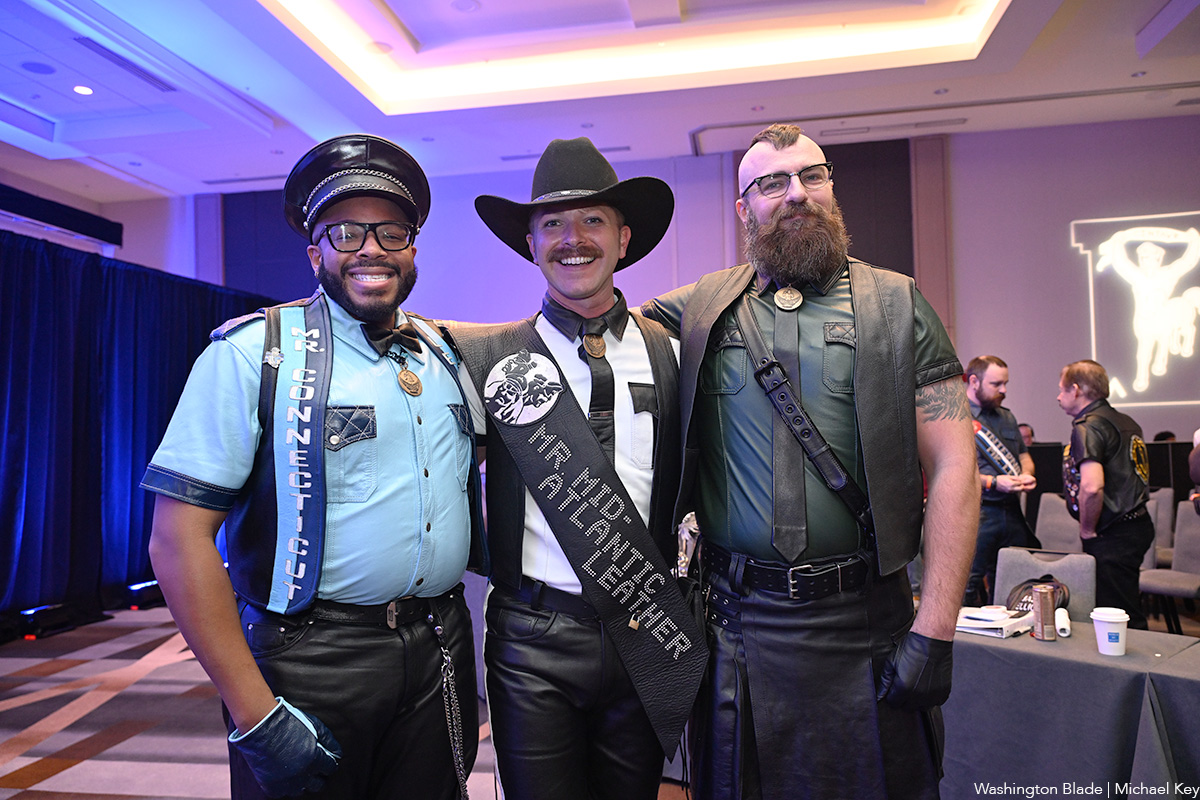
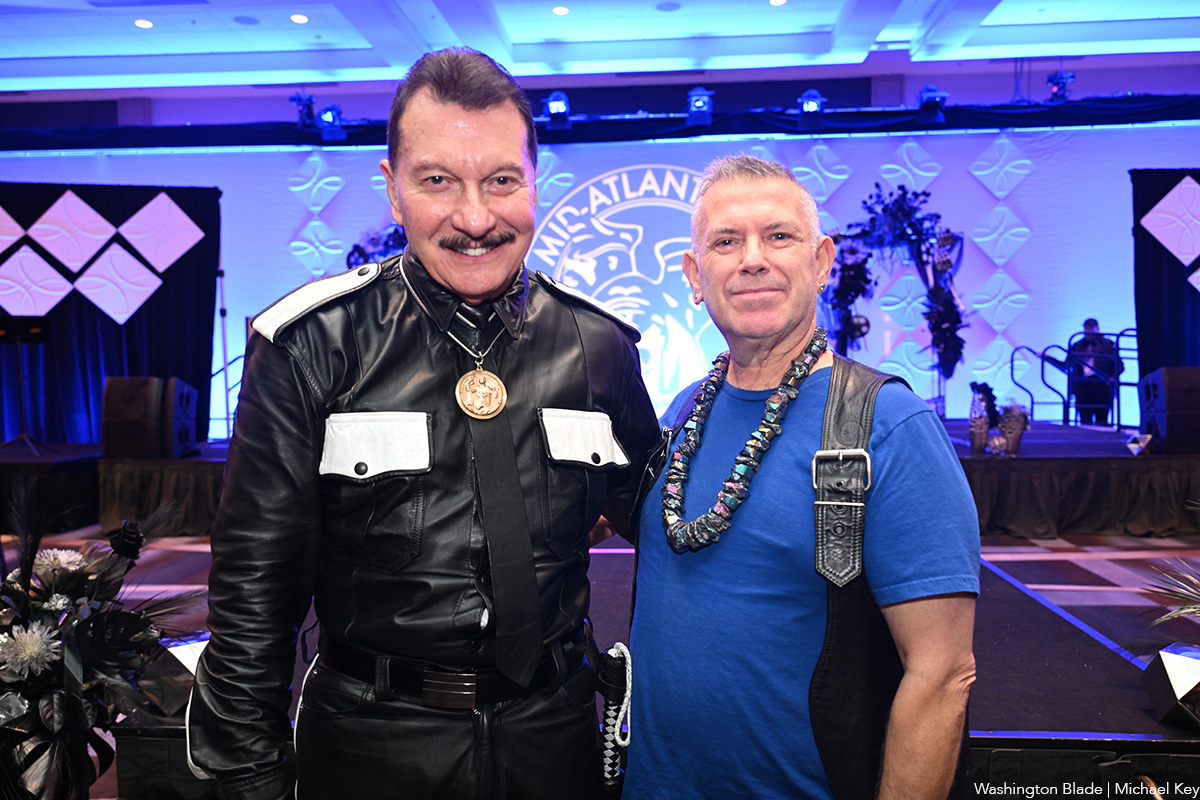
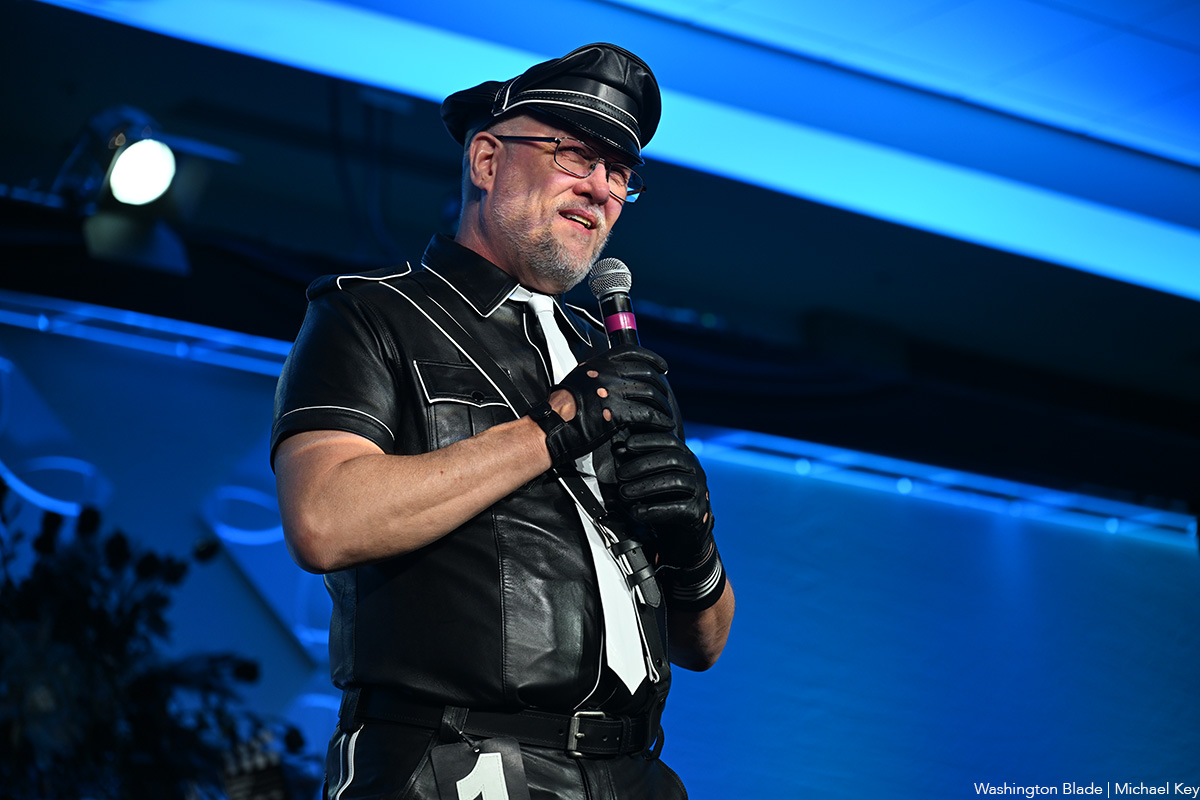
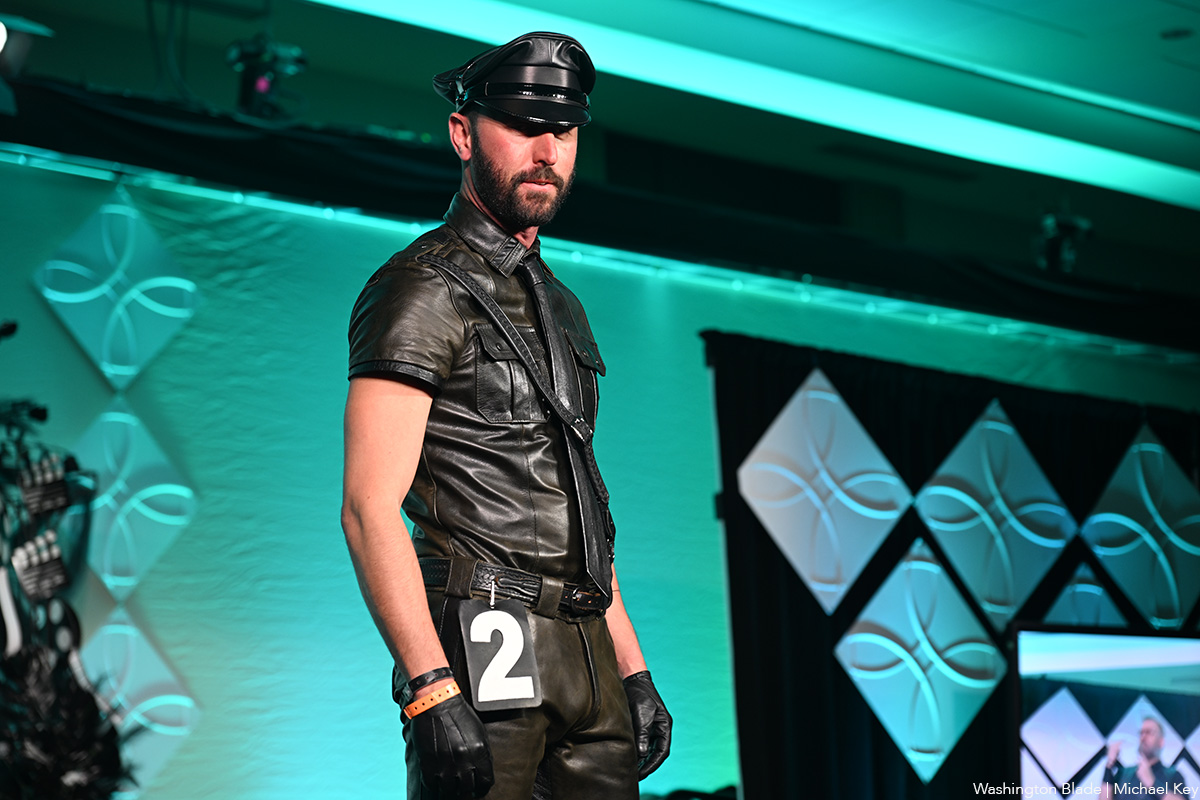
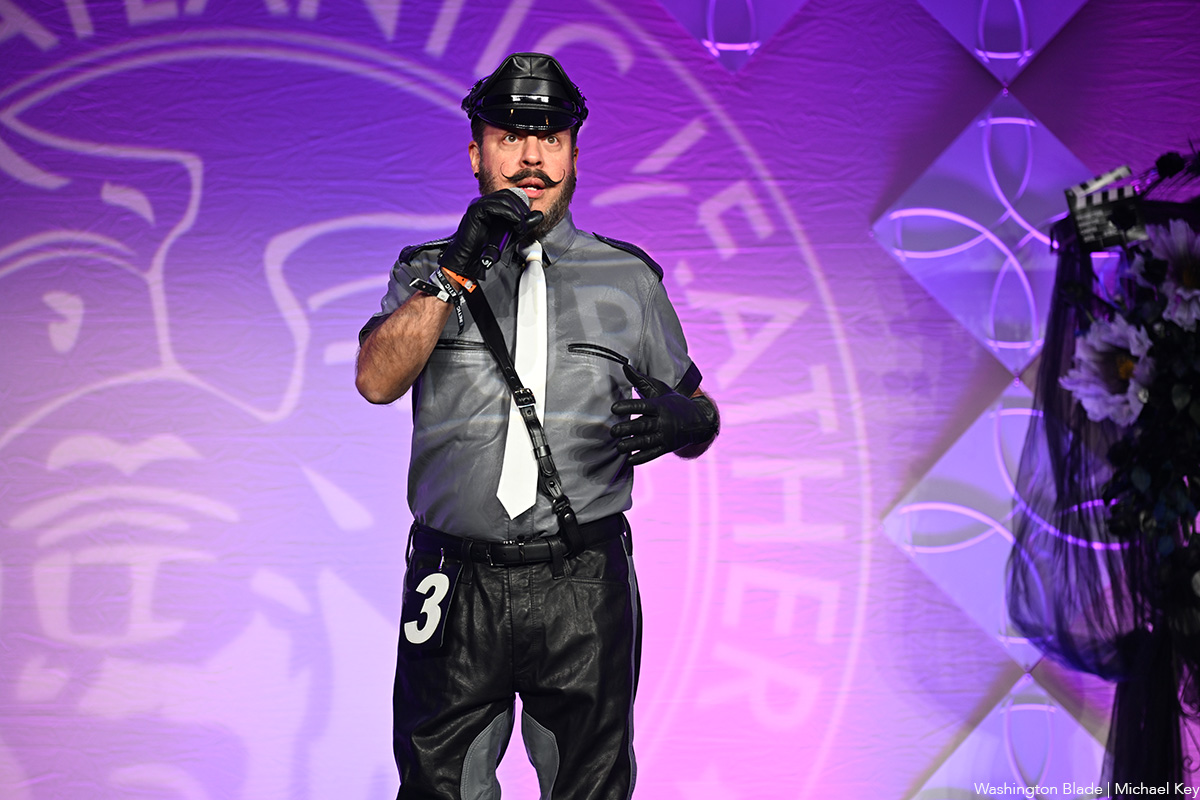
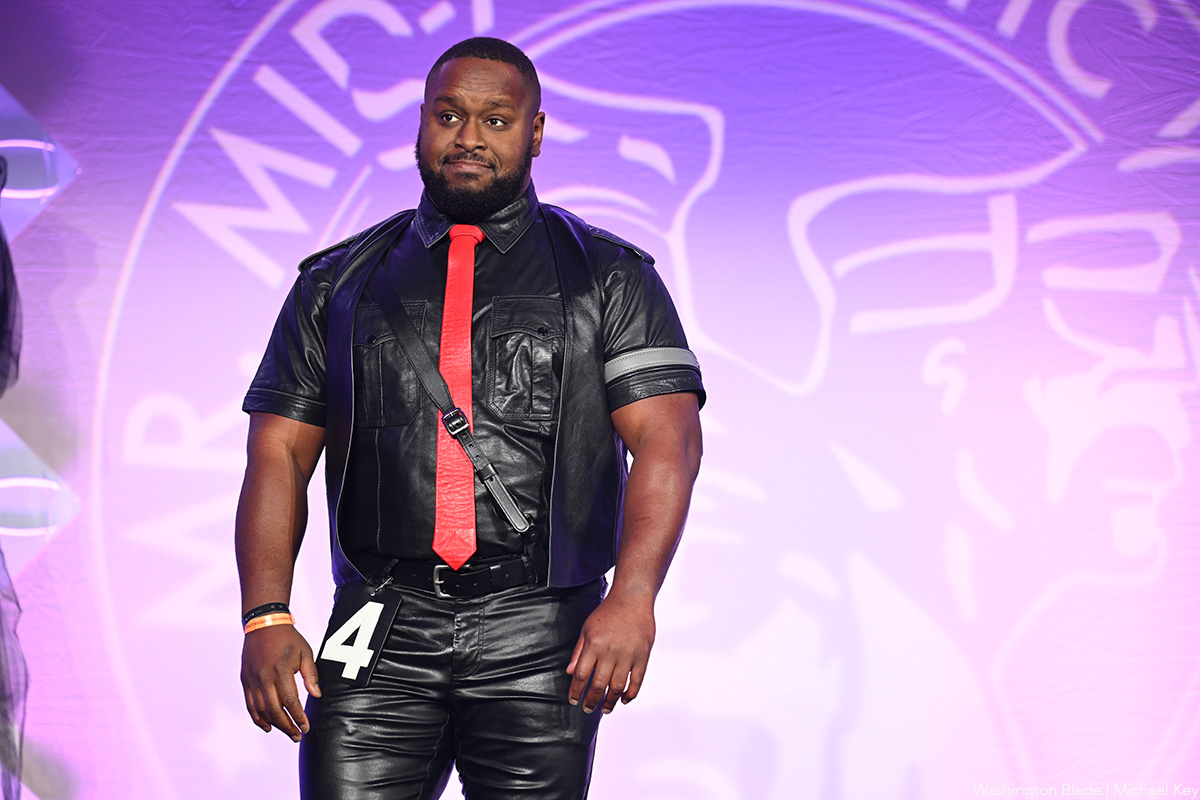
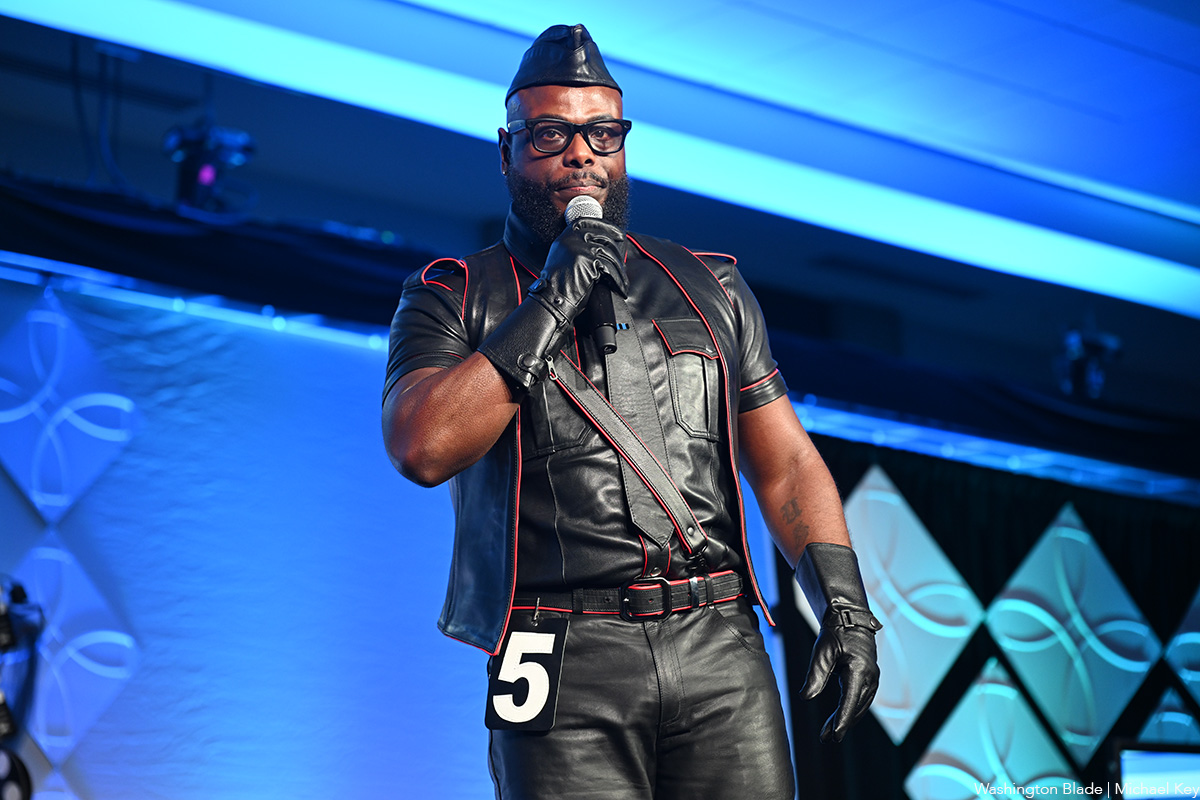
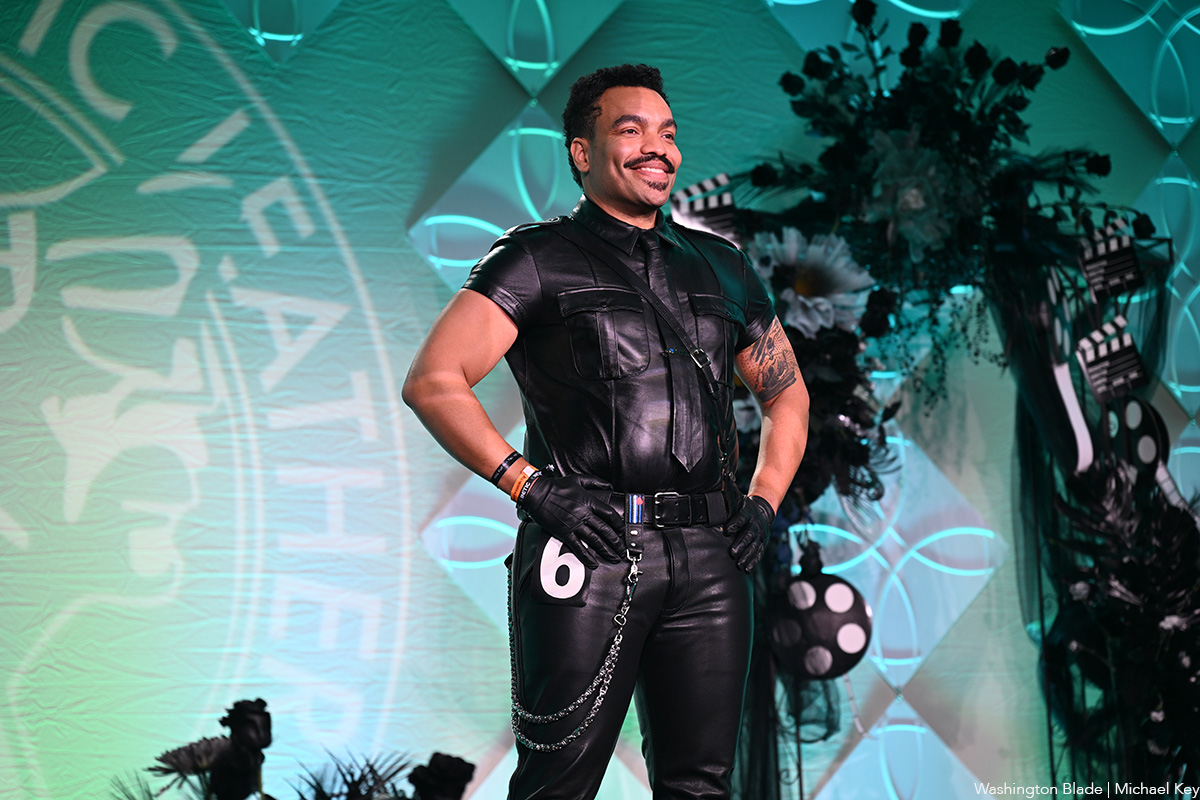
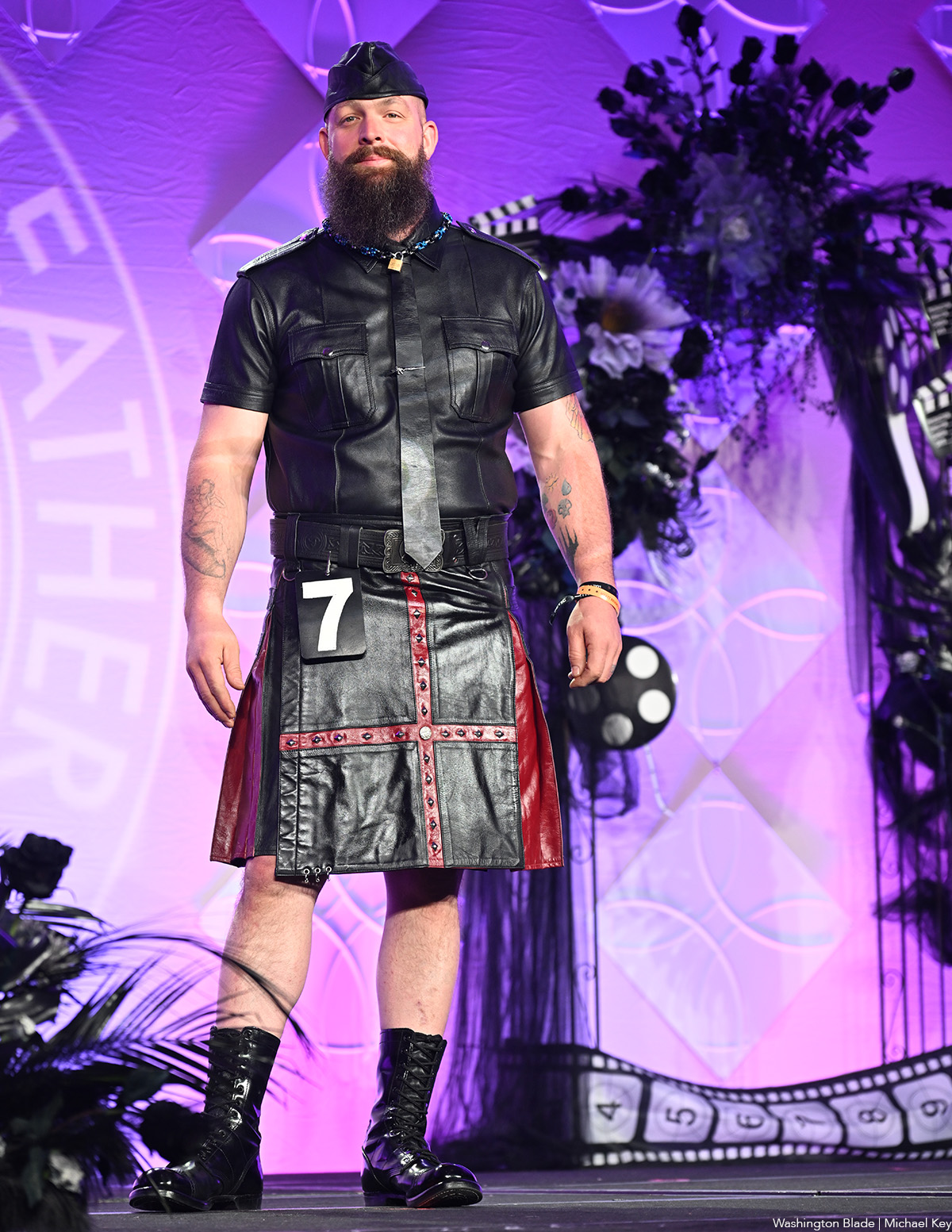
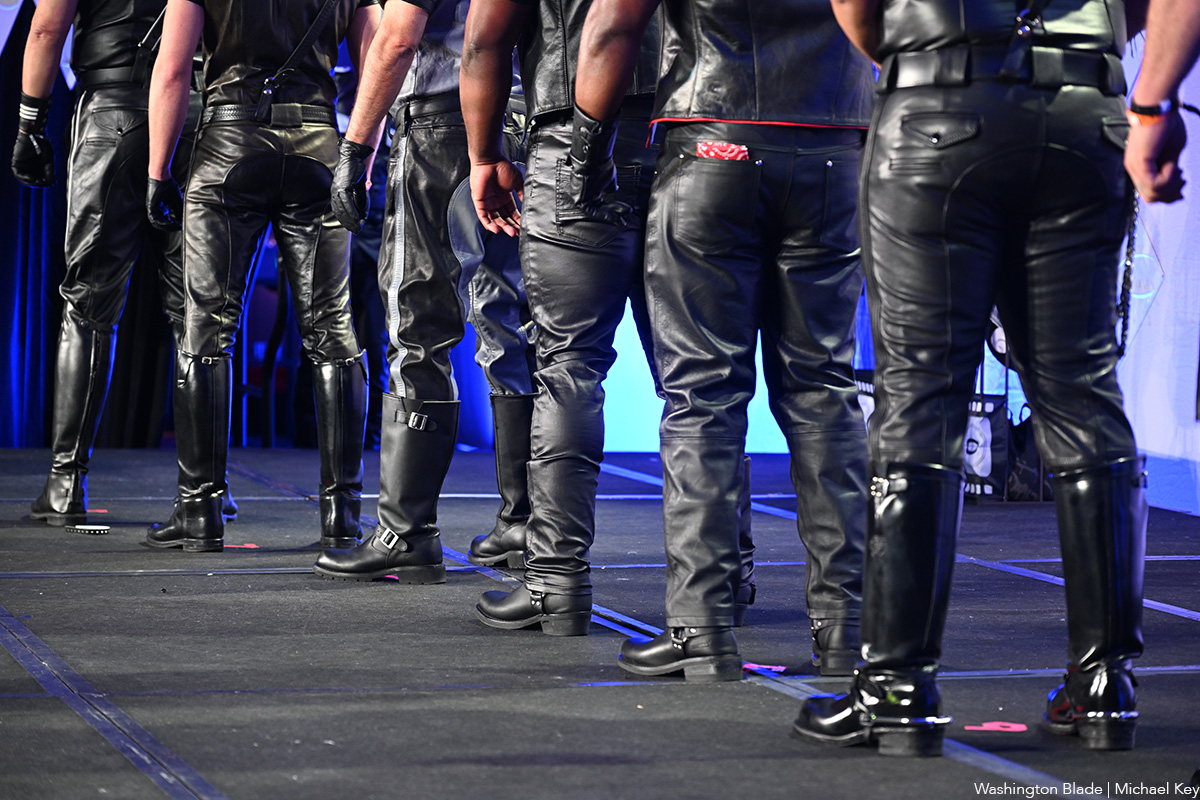
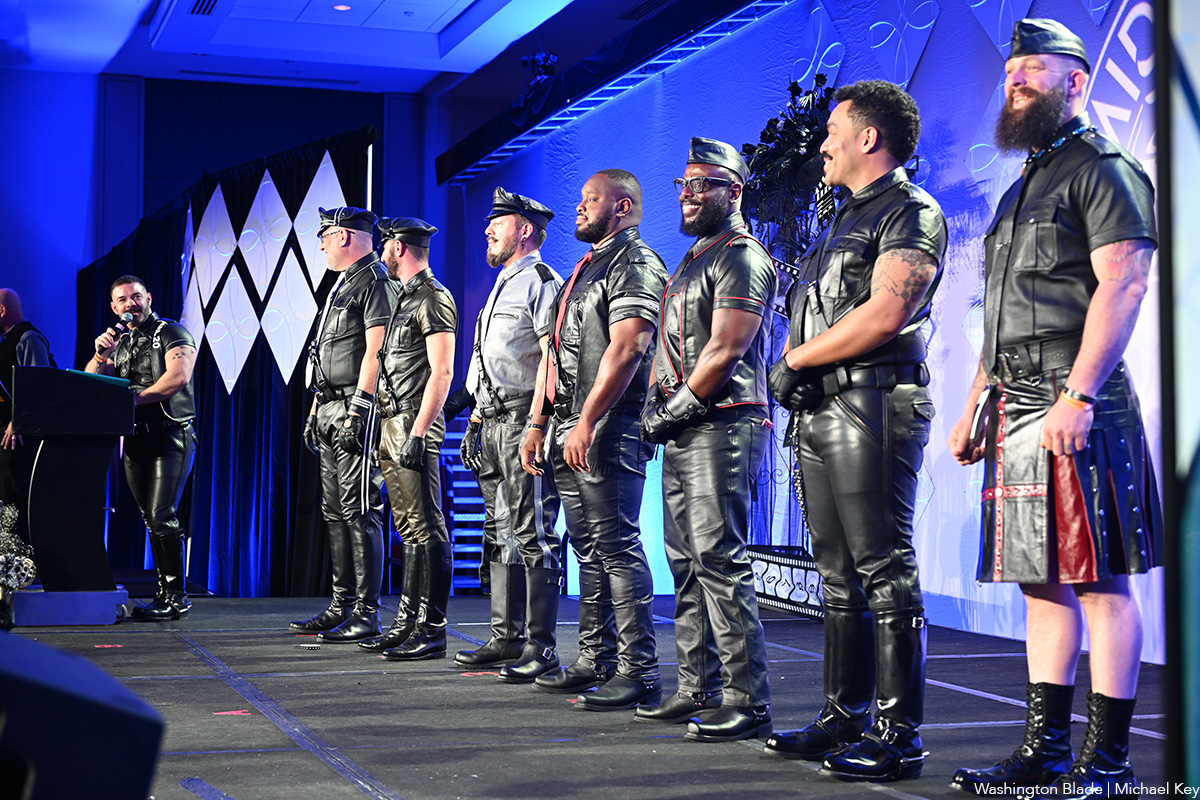
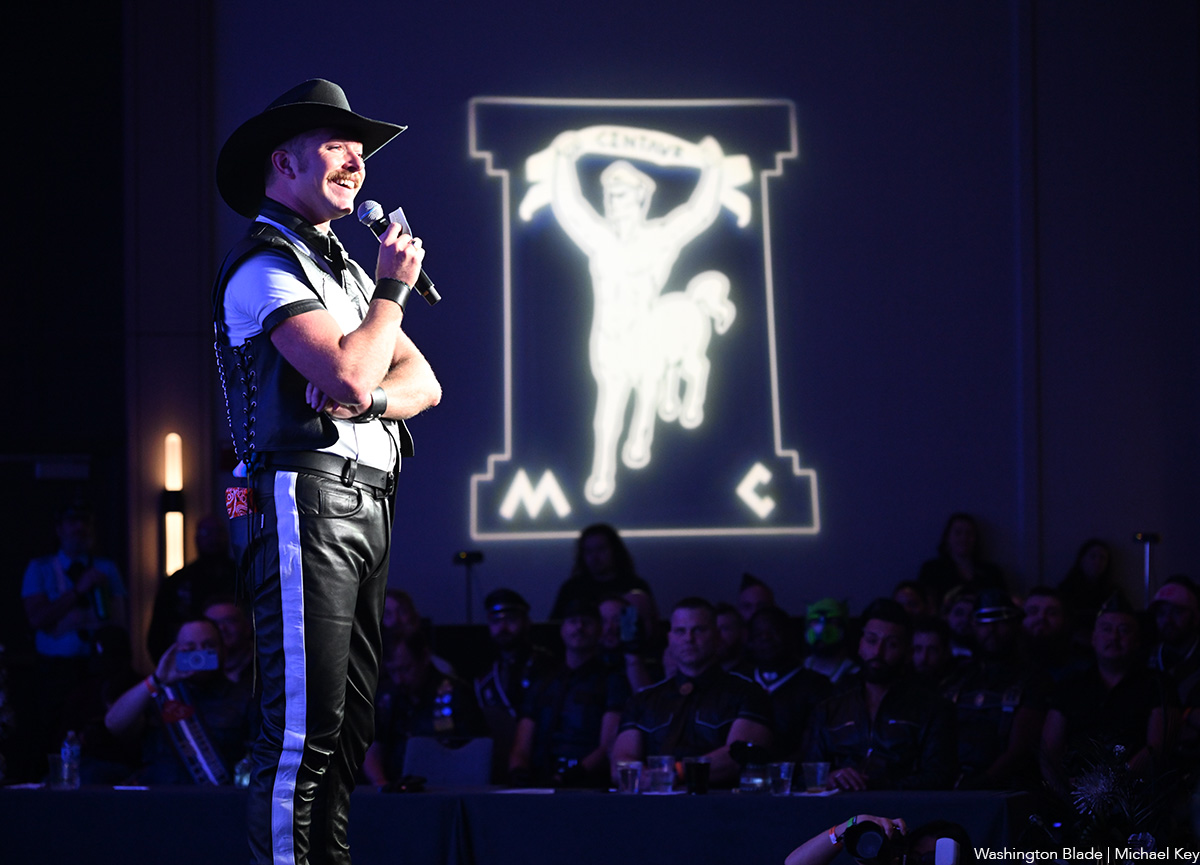
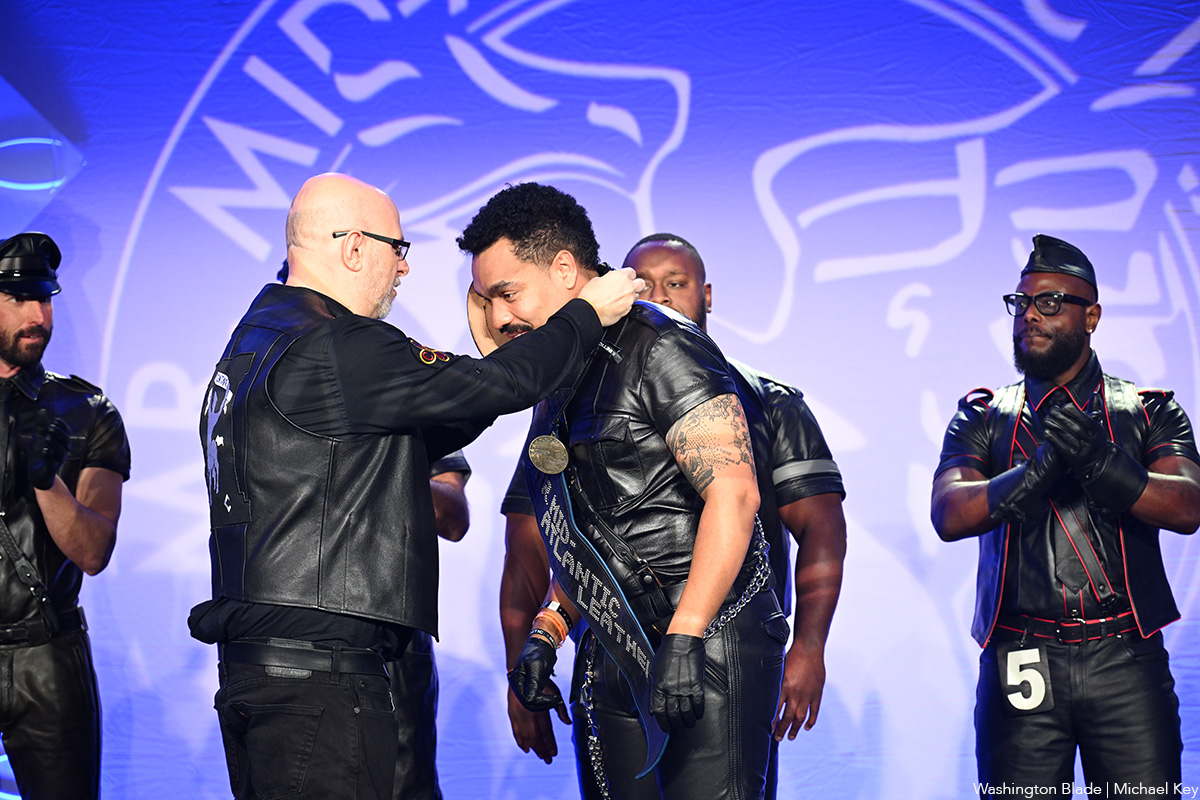
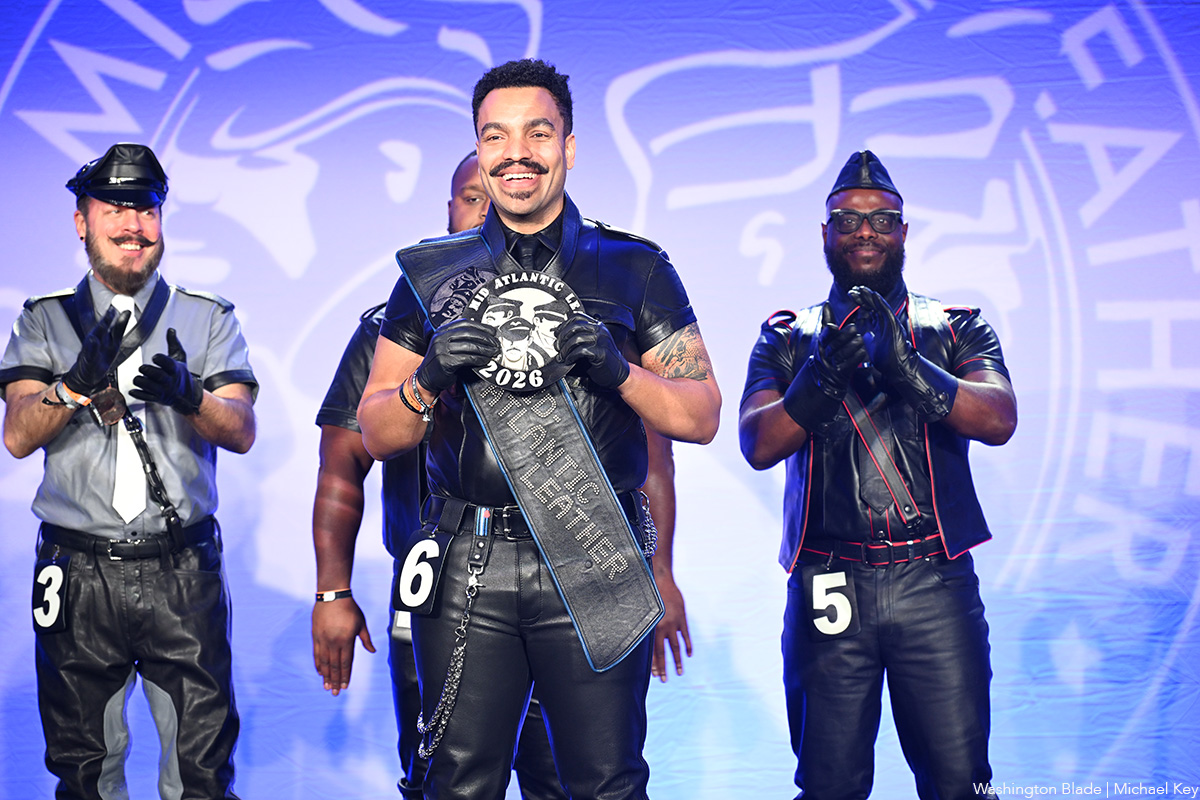
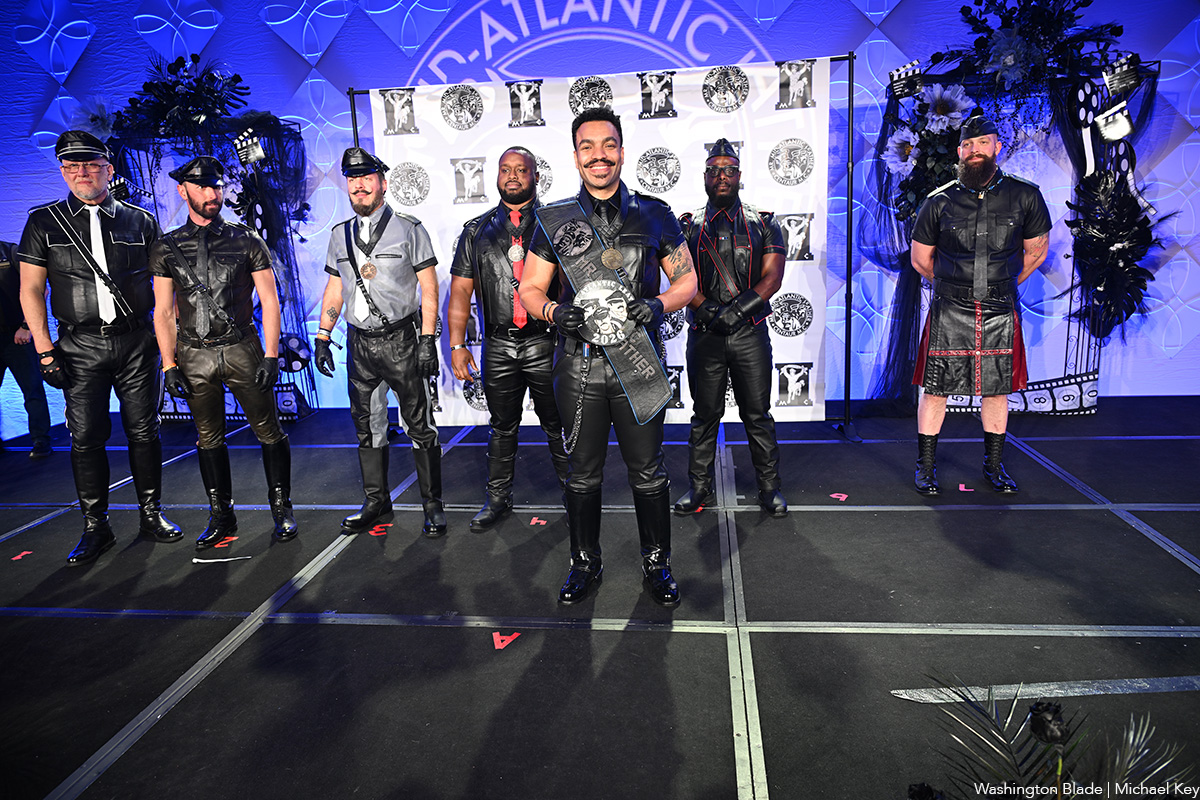
Theater
Voiceless ‘Antony & Cleopatra’ a spectacle of operatic proportions
Synetic production pulls audience into grips of doomed lovers’ passion
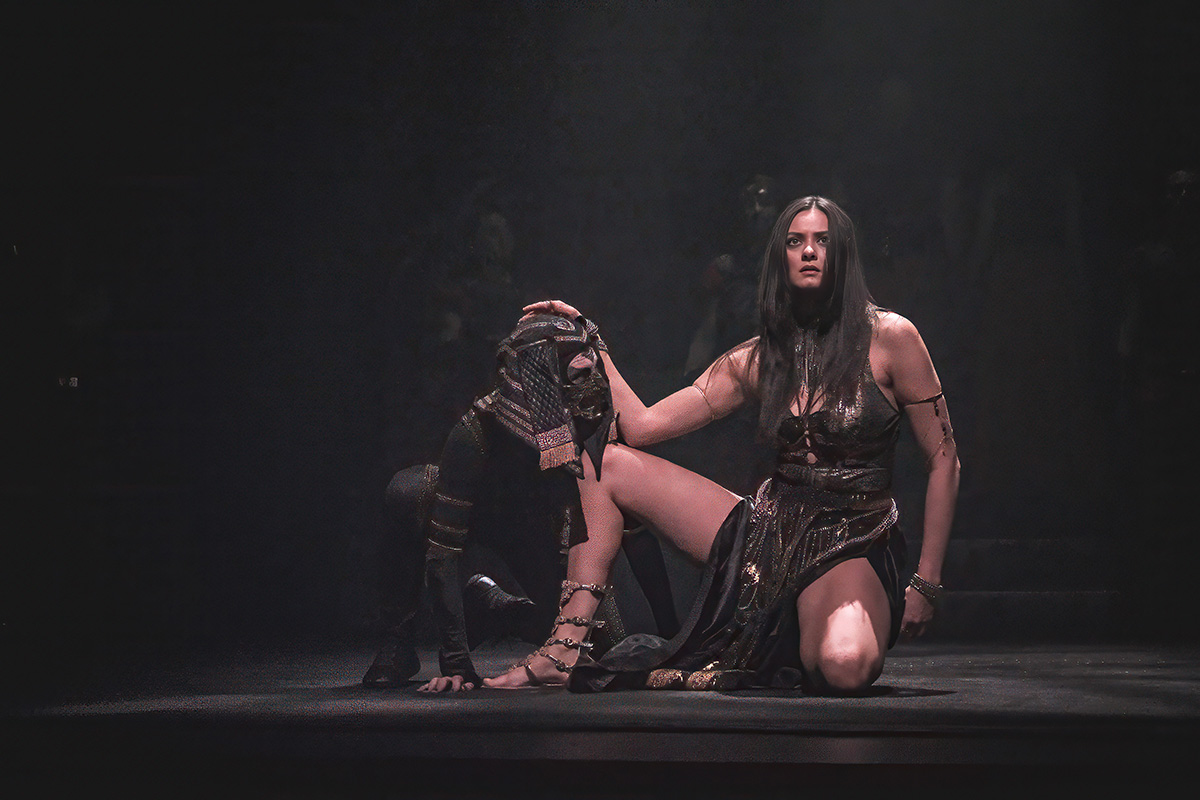
‘Antony & Cleopatra’
Through Jan. 25
Synetic Theater at
Shakespeare Theatre Company’s Klein Theatre
450 7th St., N.W.
Synetictheater.org
A spectacle of operatic proportions, Synetic Theater’s “Antony & Cleopatra” is performed entirely voiceless. An adaptation of the Bard’s original (a play bursting with wordplay, metaphors, and poetic language), the celebrated company’s production doesn’t flinch before the challenge.
Staged by Paata Tsikurishvili and choreographed by Irina Tsikurishvili, this worthy remount is currently playing at Shakespeare Theatre Company’s Klein Theatre, the same venue where it premiered 10 years ago. Much is changed, including players, but the usual inimitable Synectic energy and ingenuity remain intact.
As audiences file into the Klein, they’re met with a monumental pyramid bathed in mist on a dimly lit stage. As the lights rise, the struggle kicks off: Cleopatra (Irina Kavsadze) and brother Ptolemy (Natan-Maël Gray) are each vying for the crown of Egypt. Alas, he wins and she’s banished from Alexandria along with her ethereal black-clad sidekick Mardian (Stella Bunch); but as history tells us, Cleopatra soon makes a triumphant return rolled in a carpet.
Meanwhile, in the increasingly dangerous Rome, Caesar (memorably played by Tony Amante) is assassinated by a group of senators. Here, his legendary Ides of March murder is rather elegantly achieved by silver masked politicians, leaving the epic storytelling to focus on the titular lovers.
The fabled couple is intense. As the Roman general Antony, Vato Tsikurishvili comes across as equal parts warrior, careerist, and beguiled lover. And despite a dose of earthiness, it’s clear that Kavsadze’s Cleopatra was born to be queen.
Phil Charlwood’s scenic design along with Colin K. Bills’ lighting cleverly morph the huge pyramidic structure into the throne of Egypt, the Roman Senate, and most astonishingly as a battle galley crashing across the seas with Tsikurishvili’s Antony ferociously at the helm.
There are some less subtle suggestions of location and empire building in the form of outsized cardboard puzzle pieces depicting the Mediterranean and a royal throne broken into jagged halves, and the back-and-forth of missives.
Of course, going wordless has its challenges. Kindly, Synectic provides a compact synopsis of the story. I’d recommend coming early and studying that page. With changing locations, lots of who’s who, shifting alliances, numerous war skirmishes, and lack of dialogue, it helps to get a jump on plot and characters.
Erik Teague’s terrific costume design is not only inspired but also helpful. Crimson red, silver, and white say Rome; while all things Egyptian have a more exotic look with lots of gold and diaphanous veils, etc.
When Synetic’s voicelessness works, it’s masterful. Many hands create the magic: There’s the direction, choreography, design, and the outrageously committed, sinewy built players who bring it to life through movement, some acrobatics, and the remarkable sword dancing using (actual sparking sabers) while twirling to original music composed by Konstantine Lortkipanidze.
Amid the tumultuous relationships and frequent battling (fight choreography compliments of Ben Cunis), moments of whimsy and humor aren’t unwelcome. Ptolemy has a few clownish bits as Cleopatra’s lesser sibling. And Antony’s powerful rival Octavian (ageless out actor Philip Fletcher) engages in peppy propaganda featuring a faux Cleopatra (played by Maryam Najafzada) as a less than virtuous queen enthusiastically engaged in an all-out sex romp.
When Antony and Cleopatra reach their respective ends with sword and adder, it comes almost as a relief. They’ve been through so much. And from start to finish, without uttering a word, Kavsadze and Tsikurishvili share a chemistry that pulls the audience into the grips of the doomed lovers’ palpable passion.
Out & About
Love board games and looking for love?
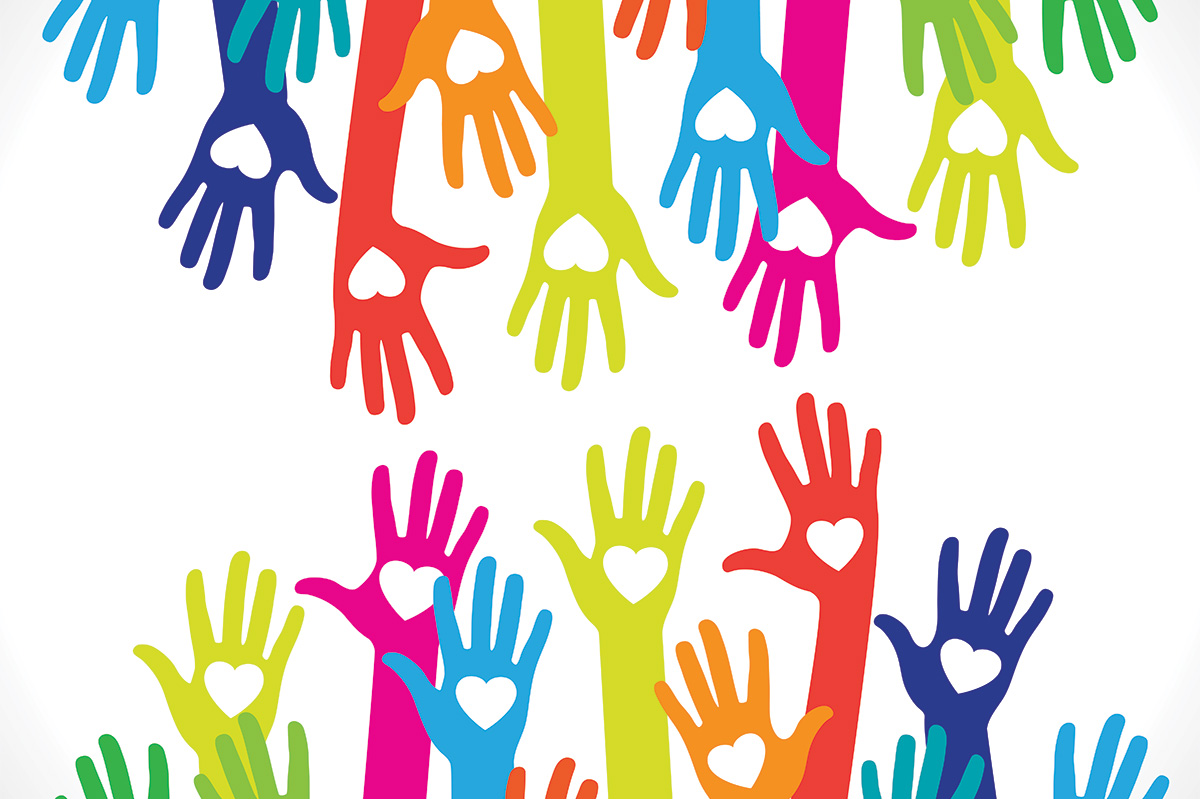
Quirk Events will host “Board Game Speed Dating for Gay Men” on Thursday, Jan. 22 at 7 p.m. at KBird DC.
Searching for a partner can be challenging. But board games are always fun. So what if you combined board games and finding a partner?
Picture this: You sit down for a night of games. A gaming concierge walks you through several games over the course of the night. You play classics you love and discover brand new games you’ve never heard of, playing each with a different group of fun singles. All while in a great establishment.
At the end of the night, you give your gaming concierge a list of the folks you met that you’d like to date and a list of those you met that you’d like to just hang out with as friends. If any two people put down the same name as each other in either column, then your gaming concierge will make sure you get each other’s e-mail address and you can coordinate a time to hang out.
Tickets cost $31.80 and can be purchased on Eventbrite.




















